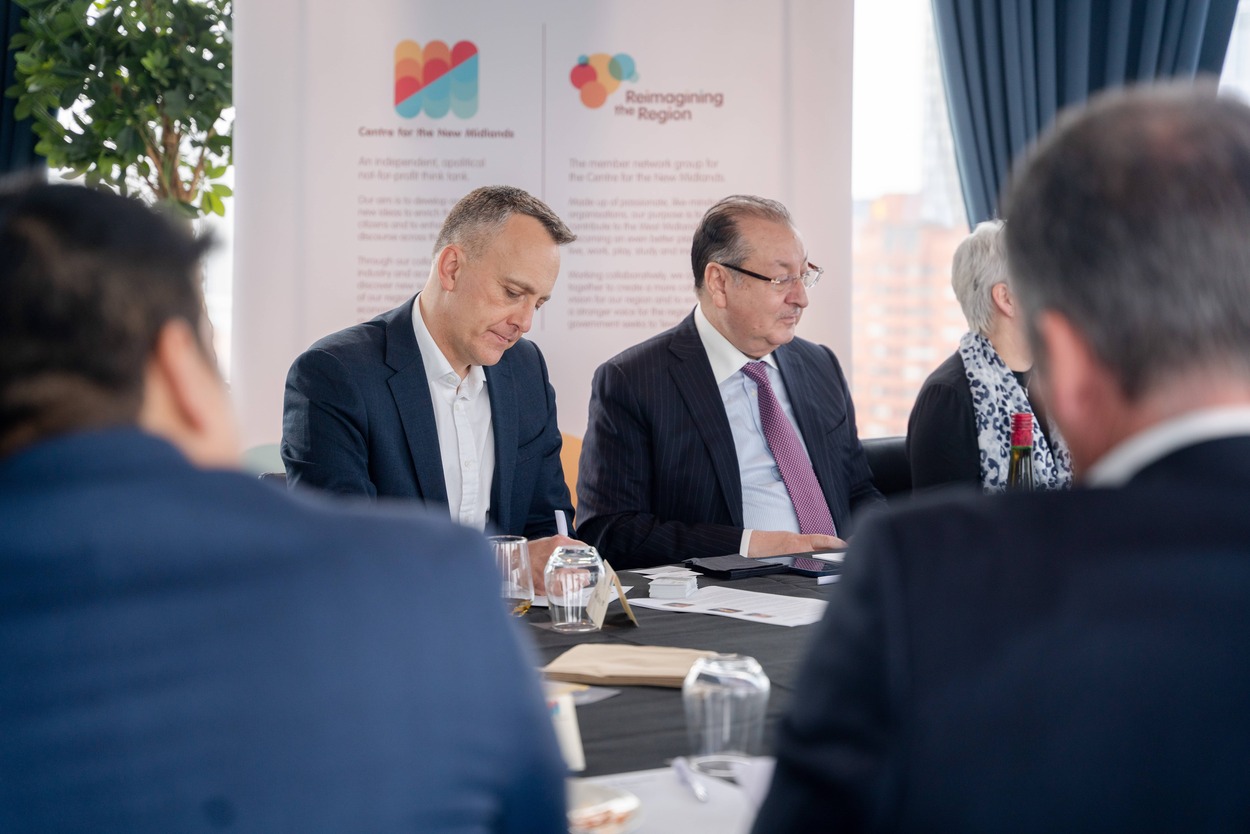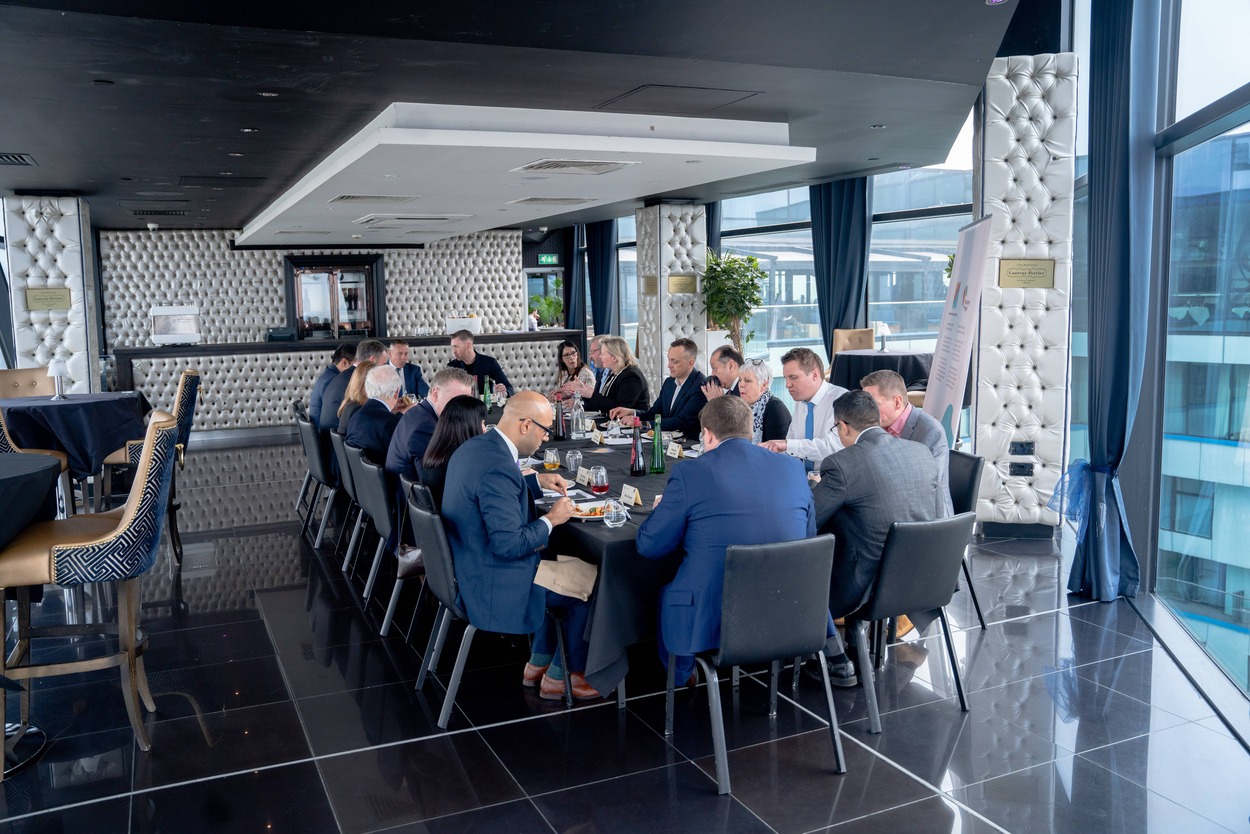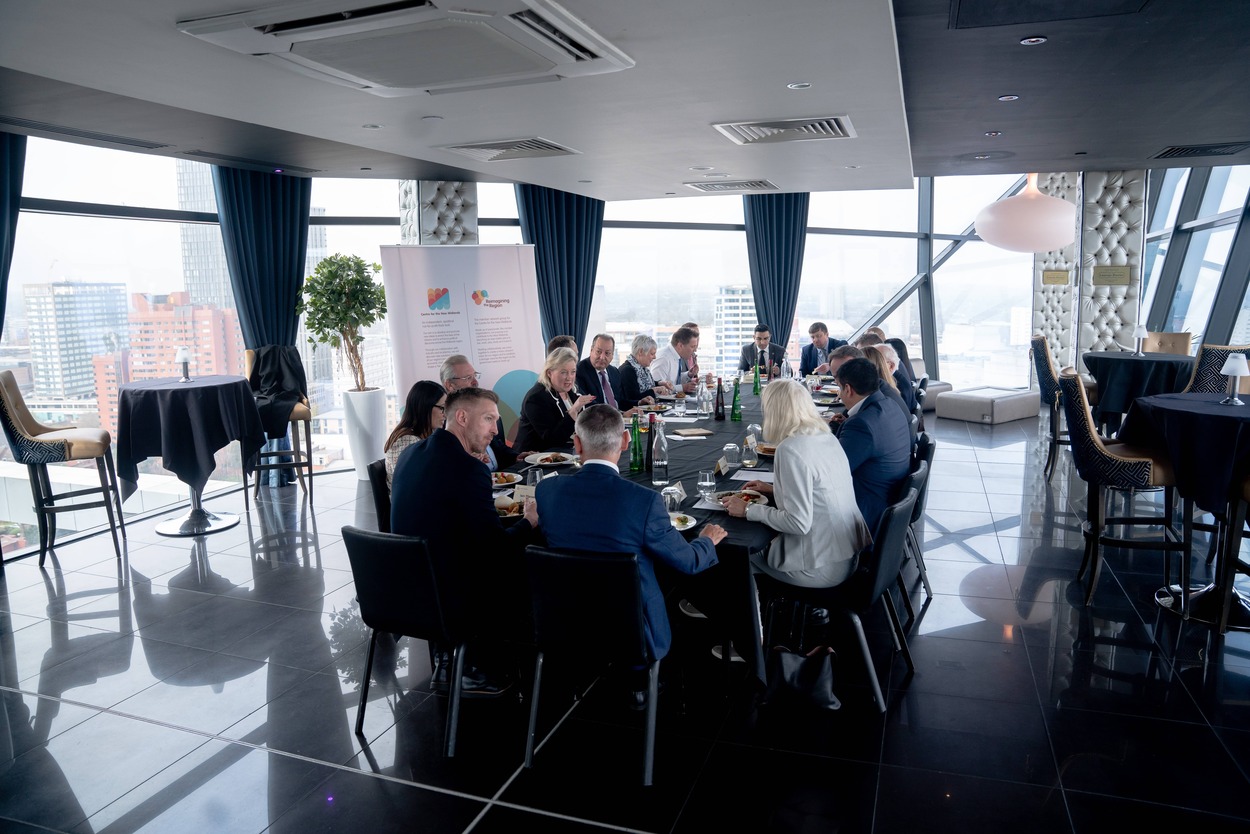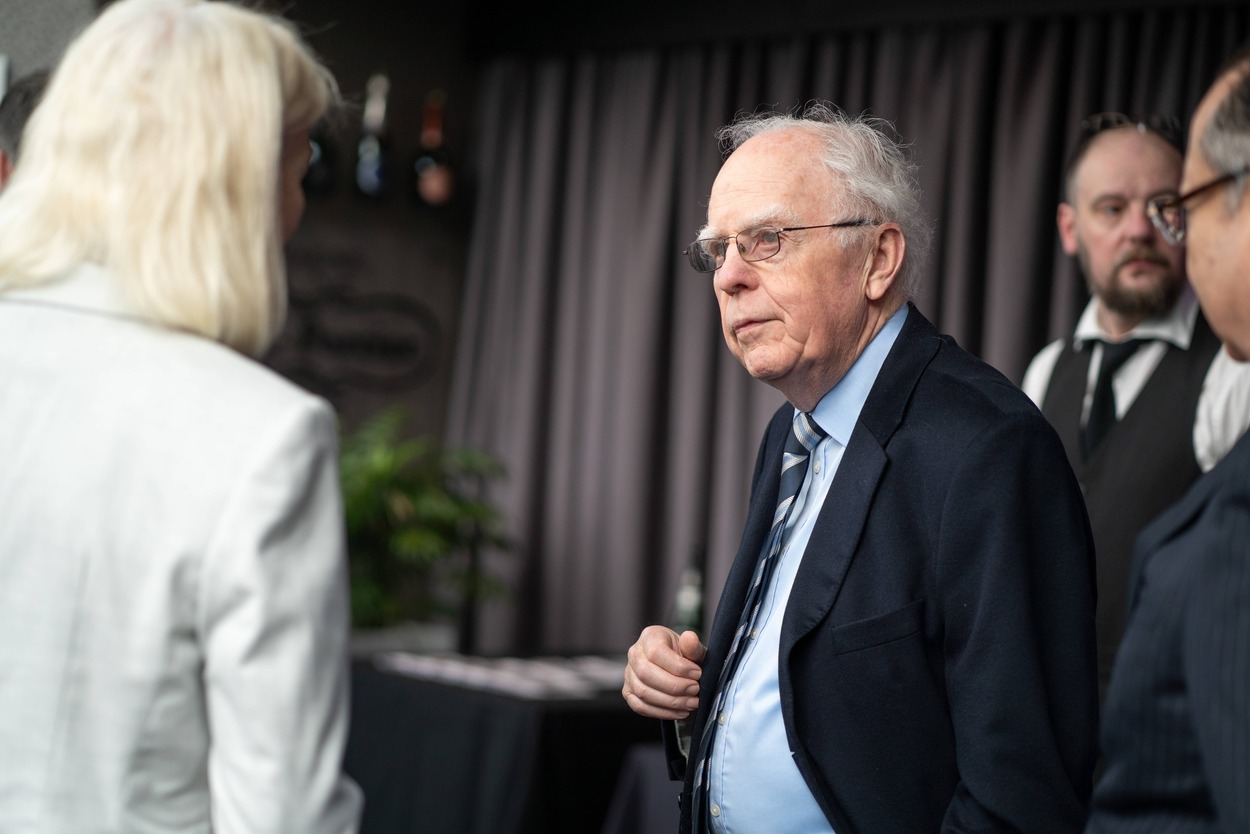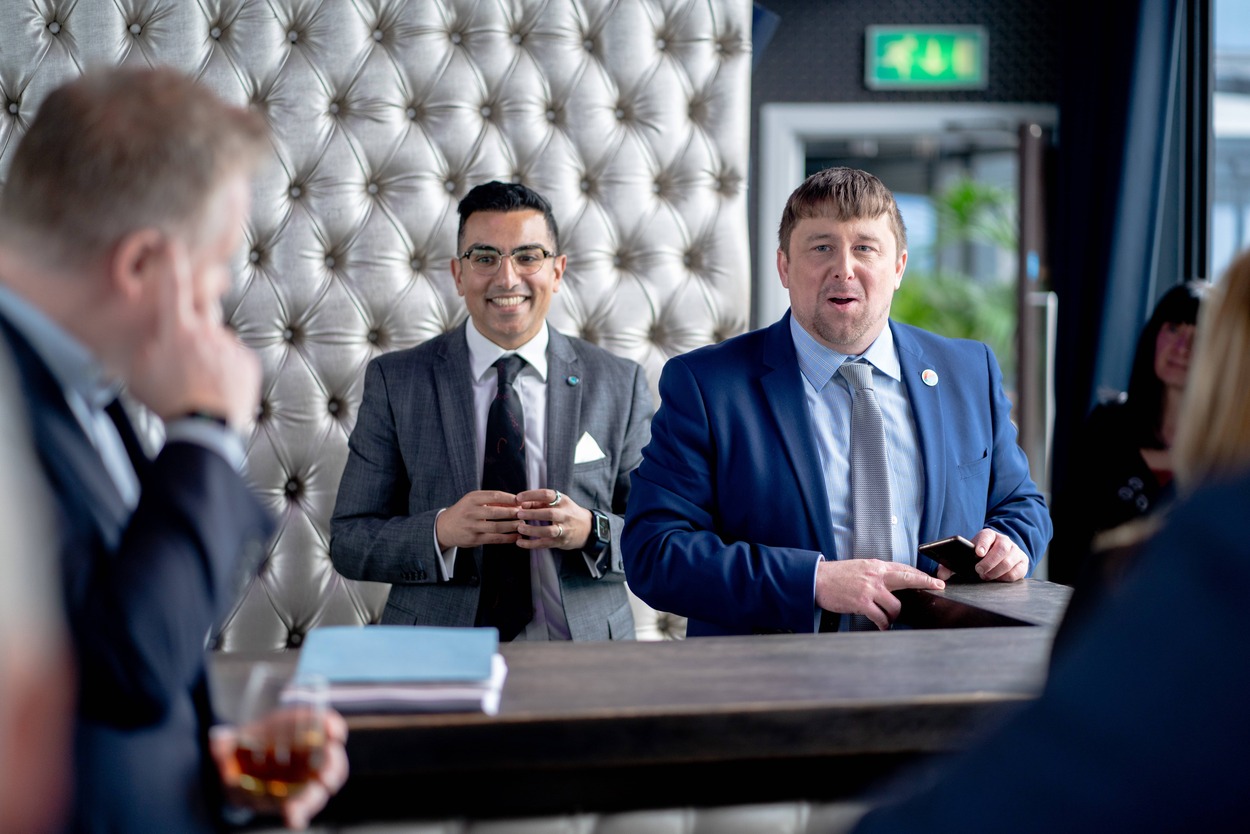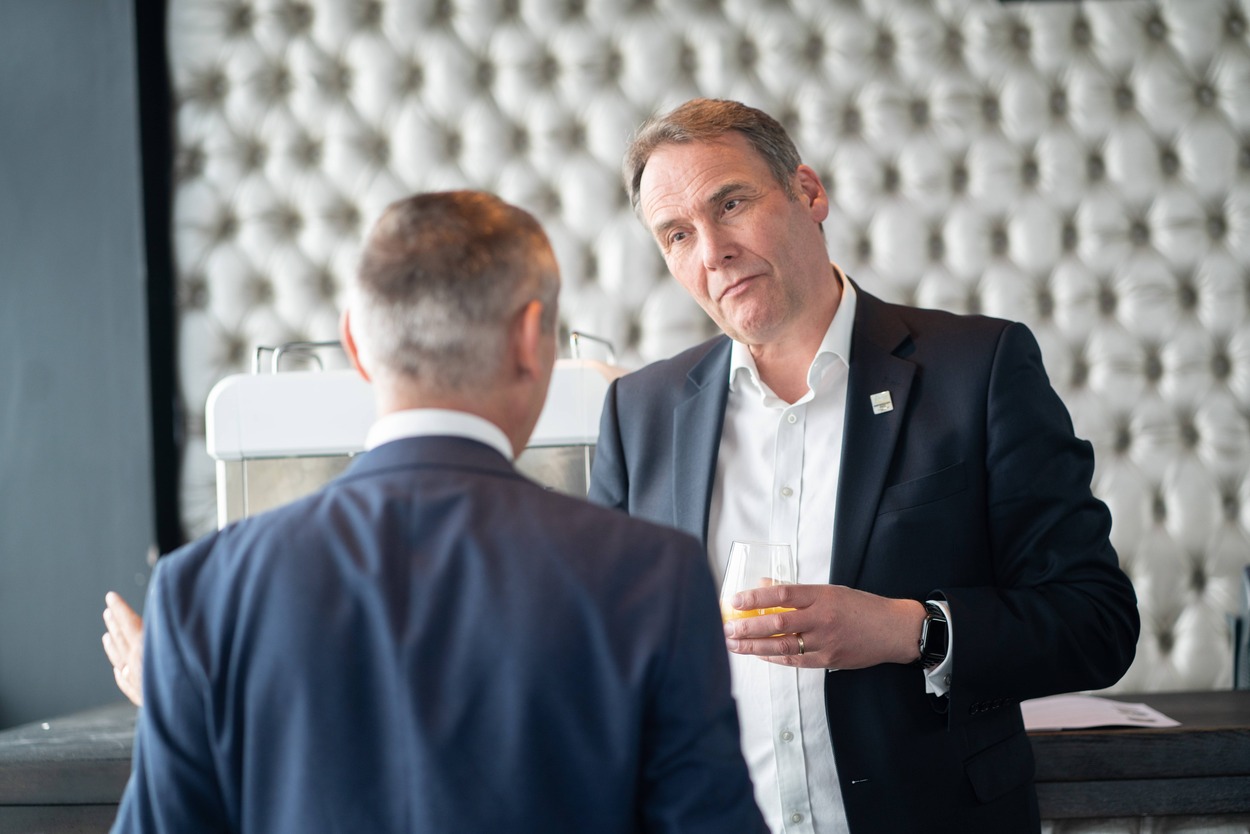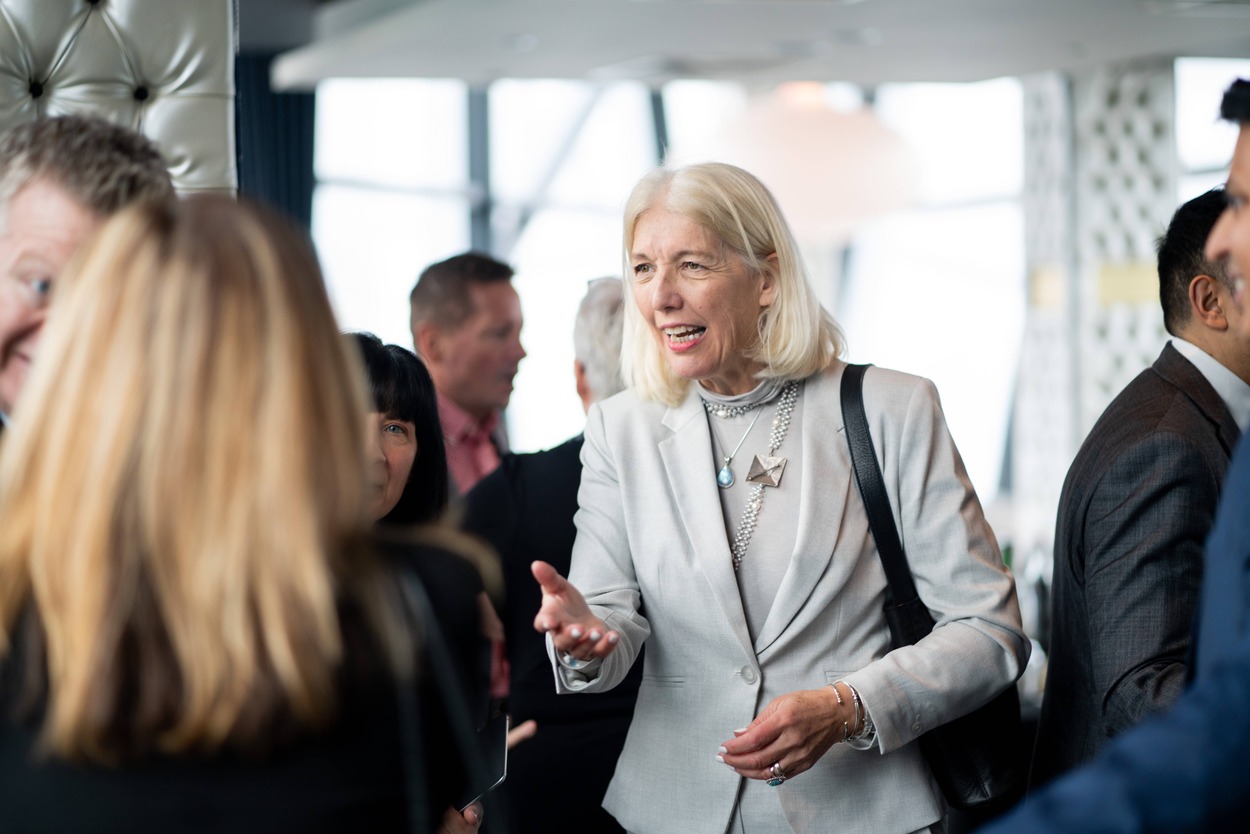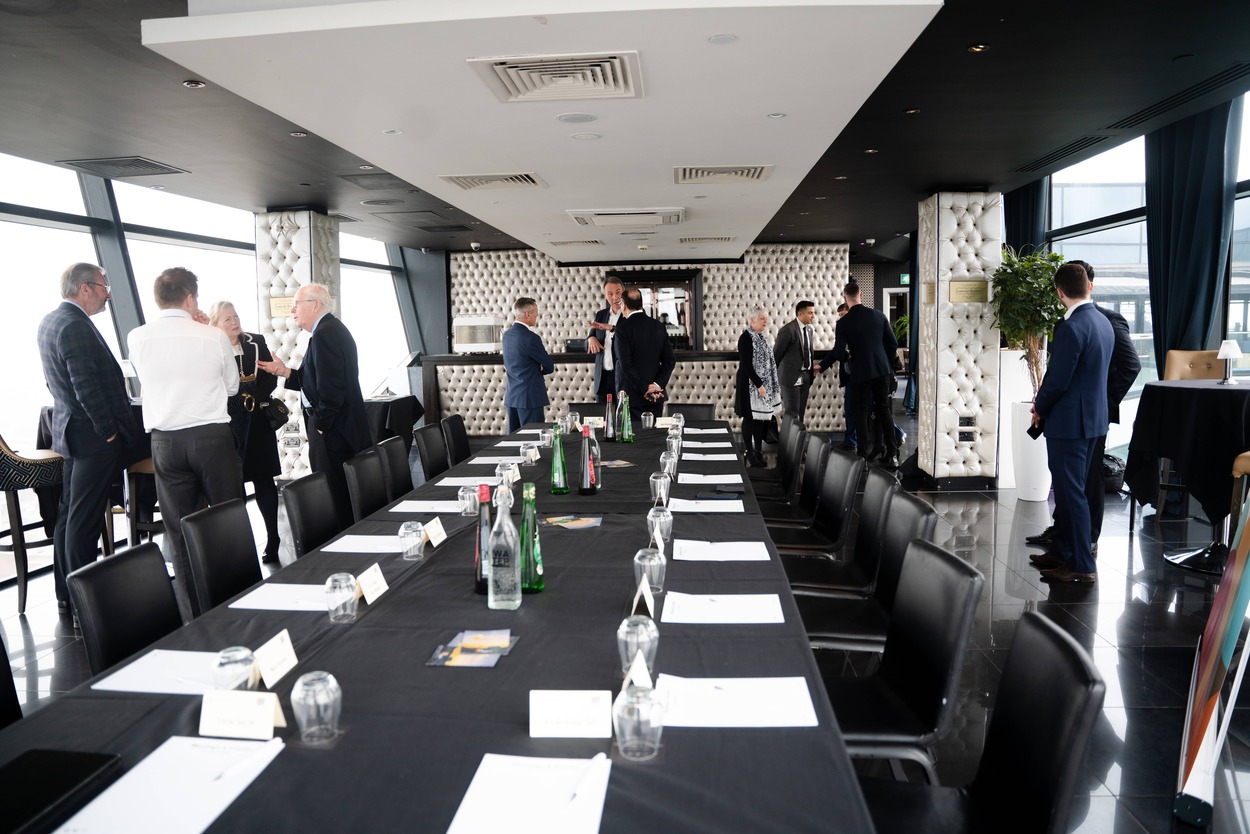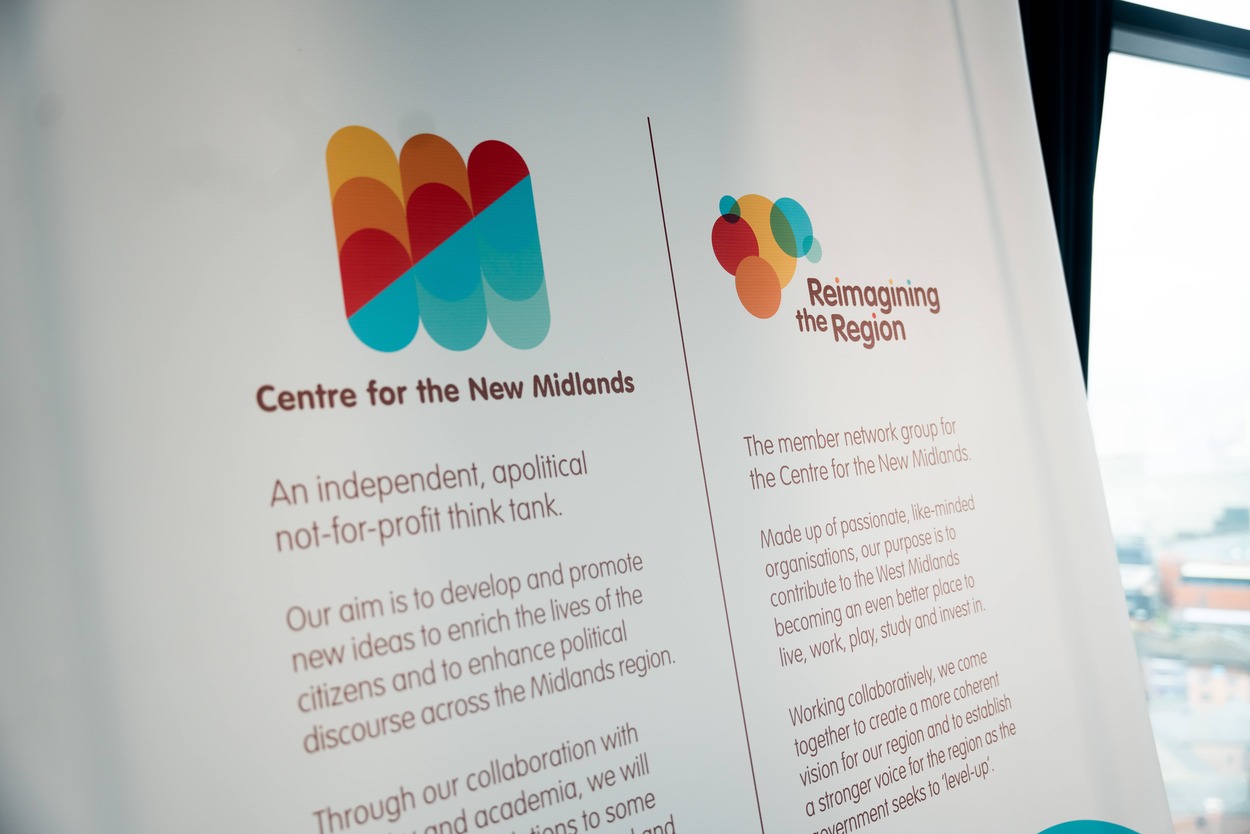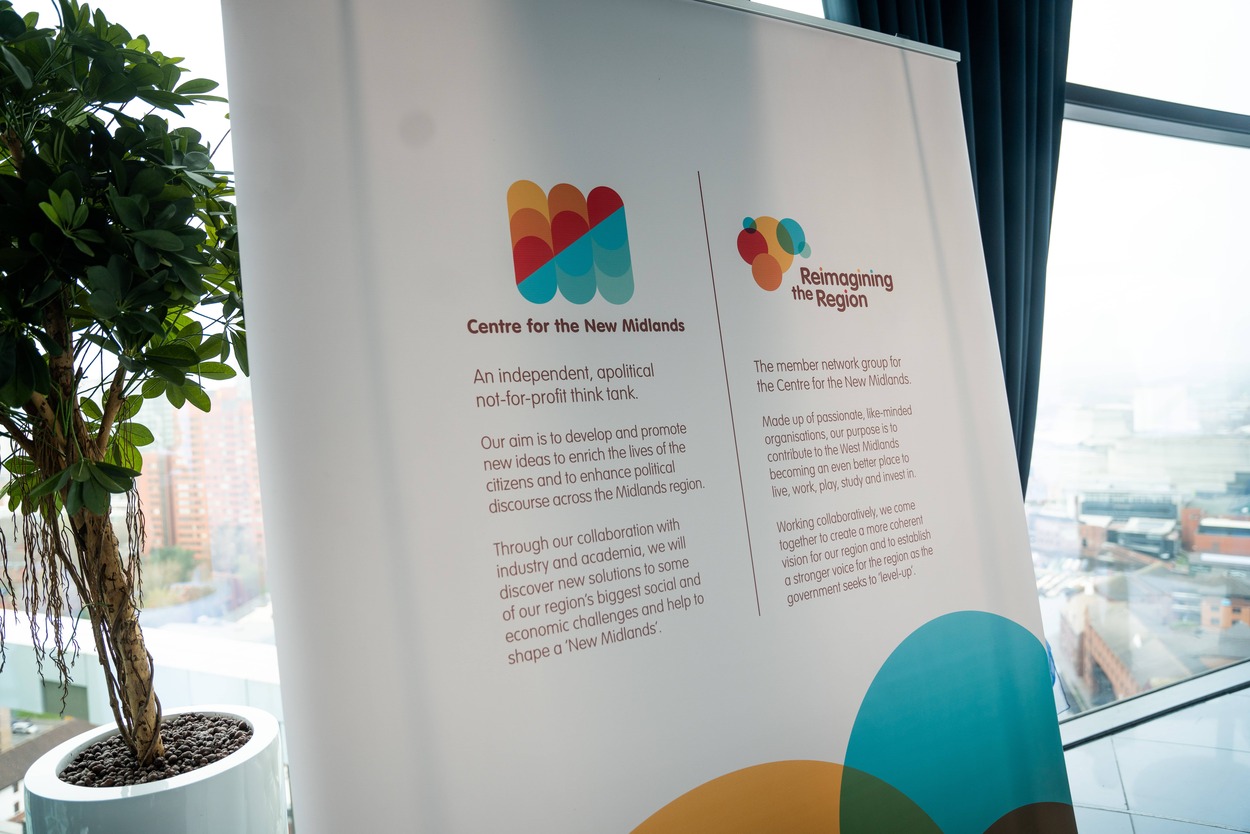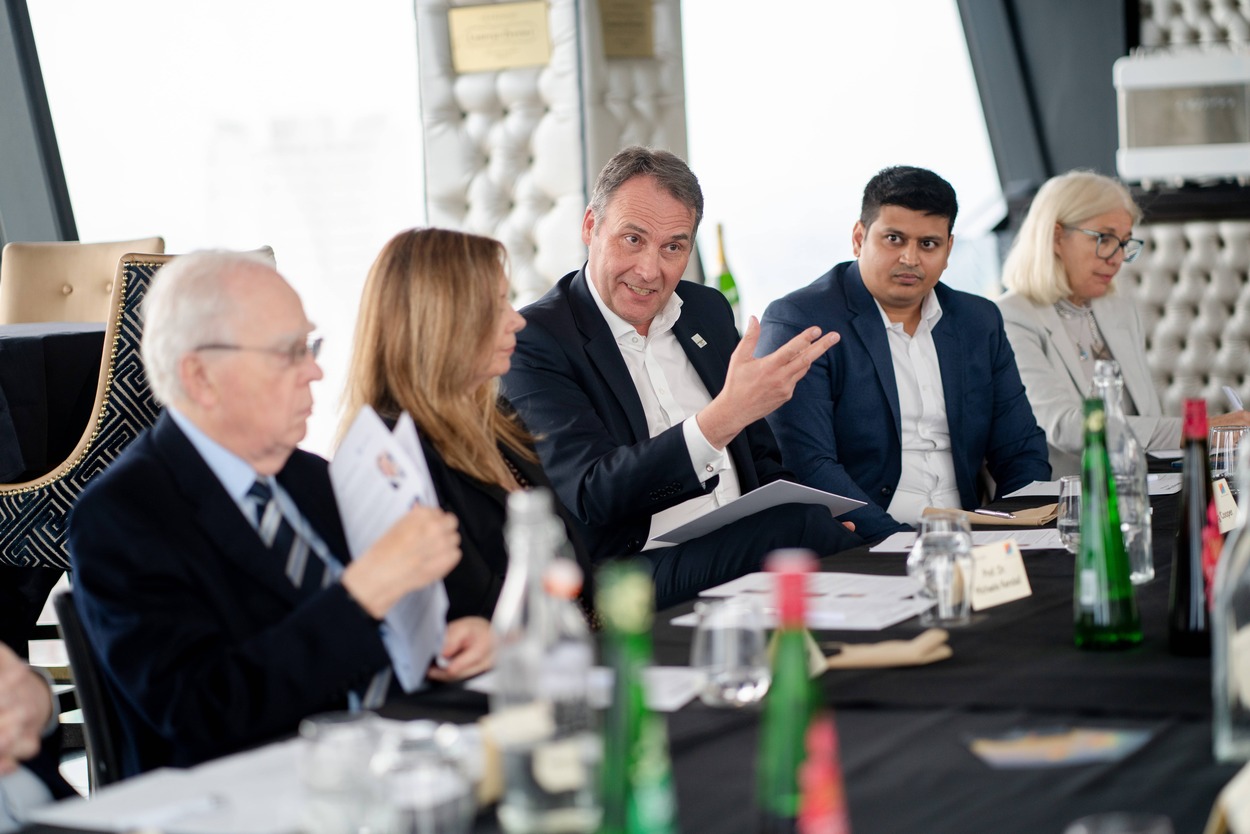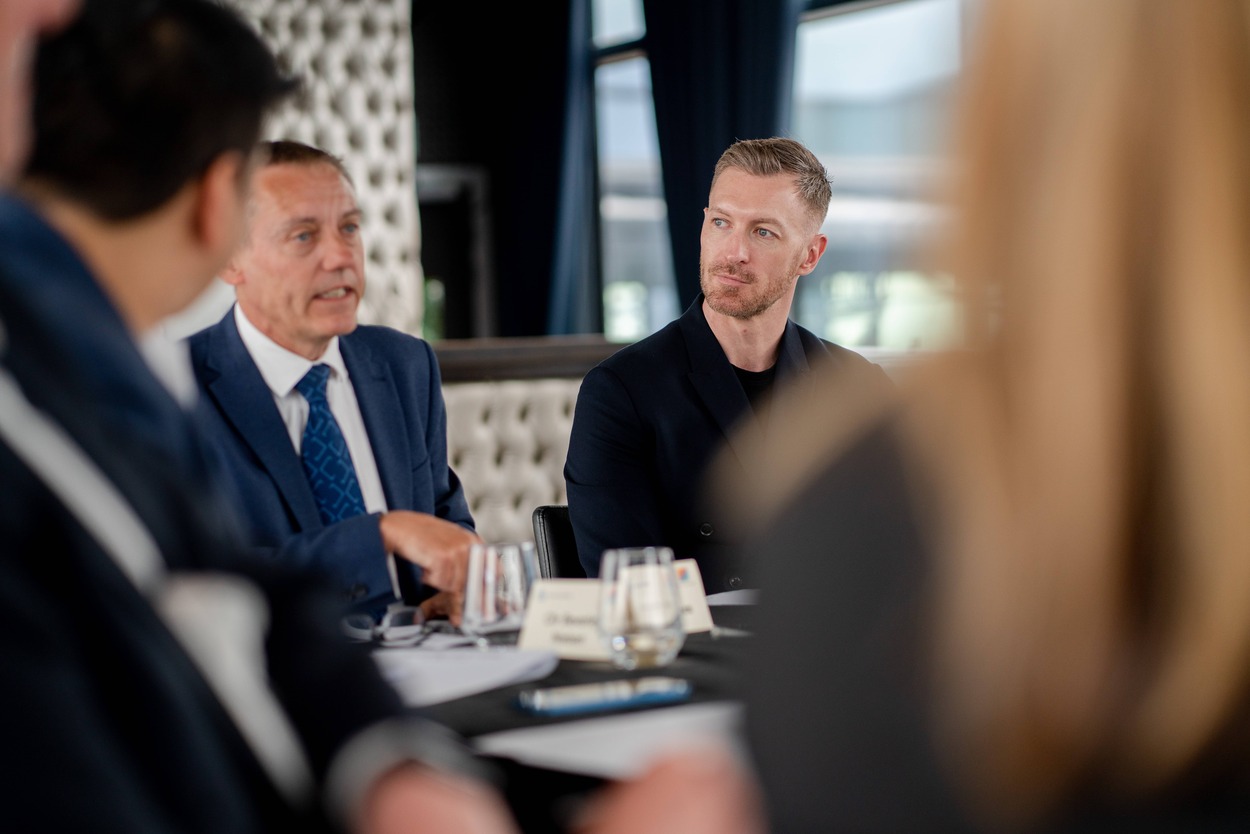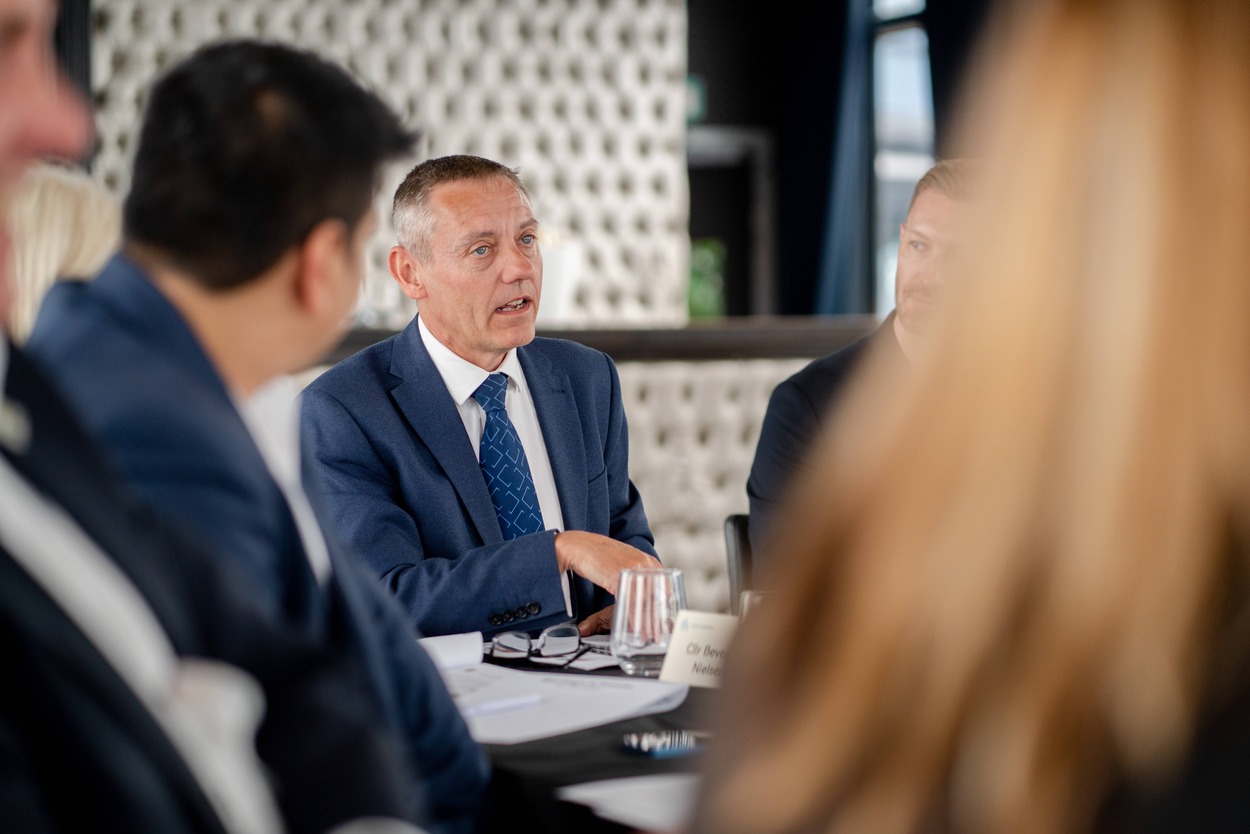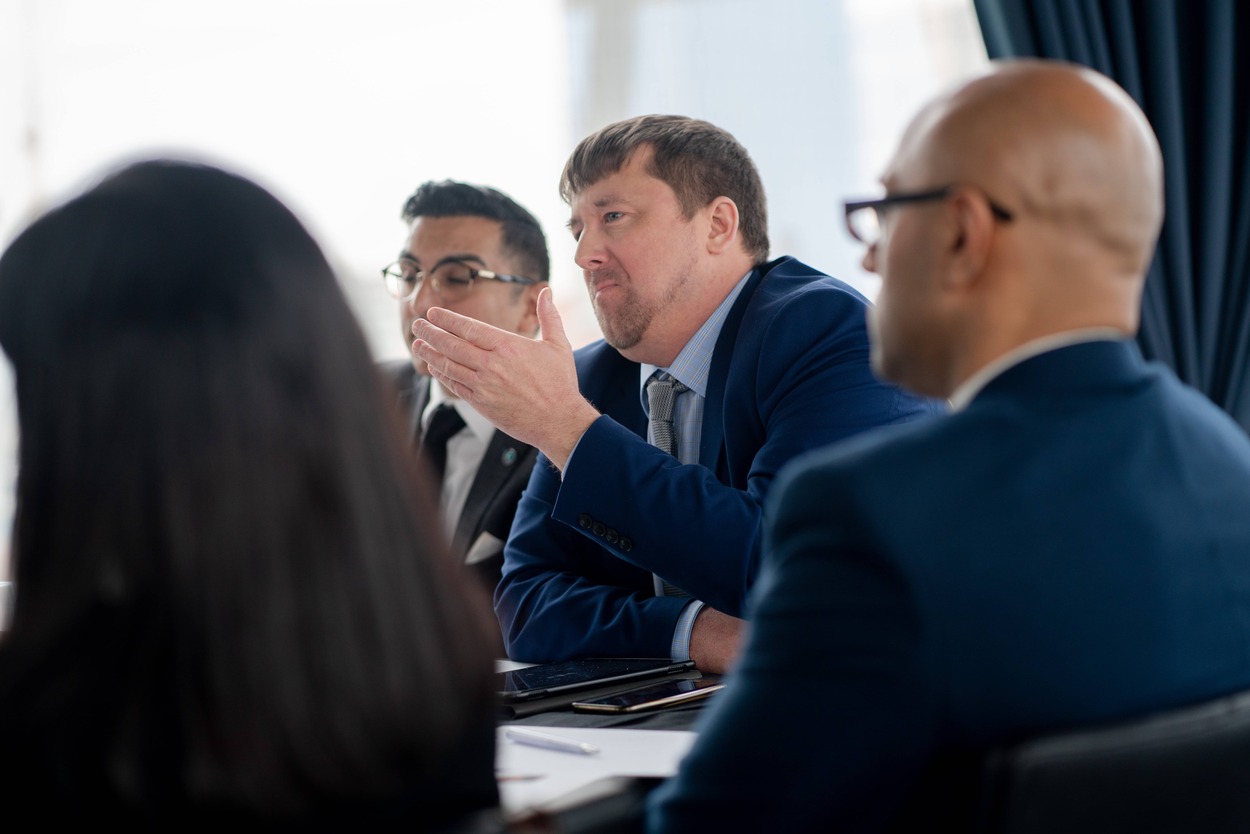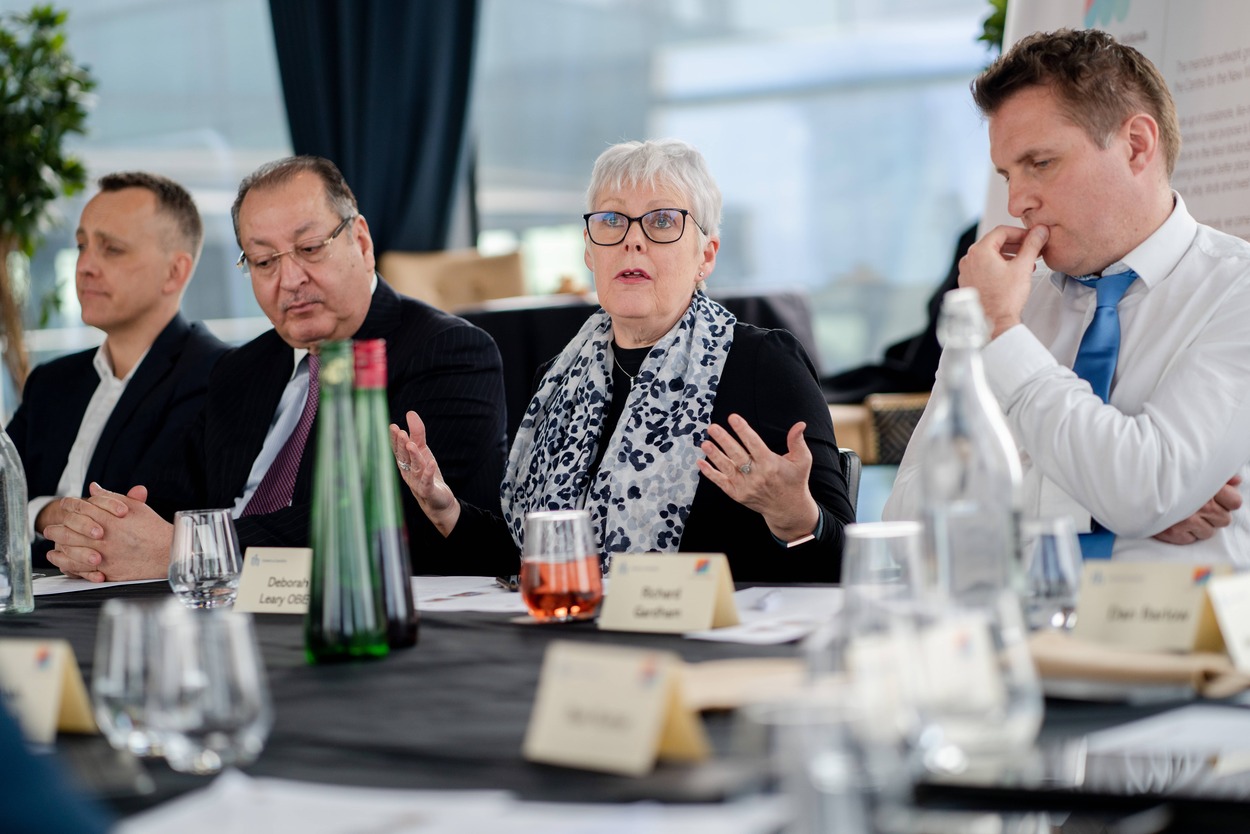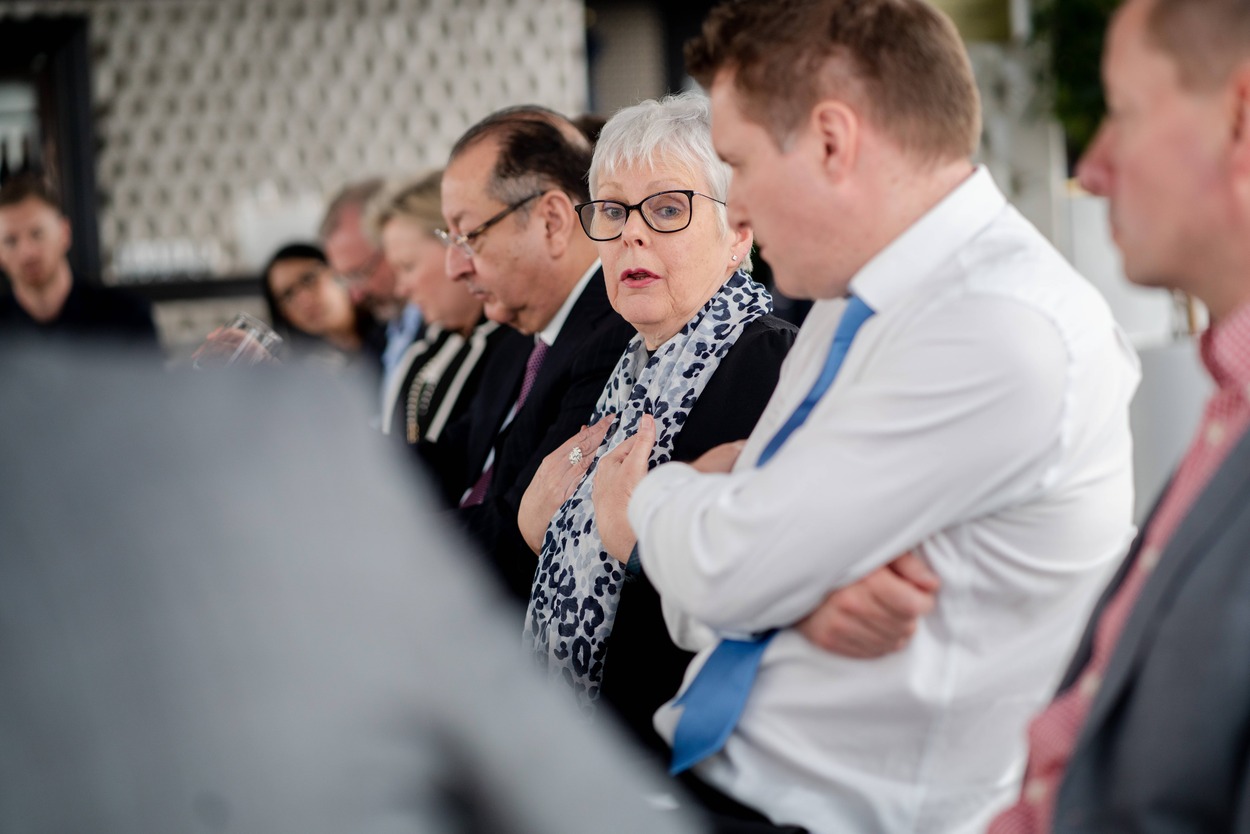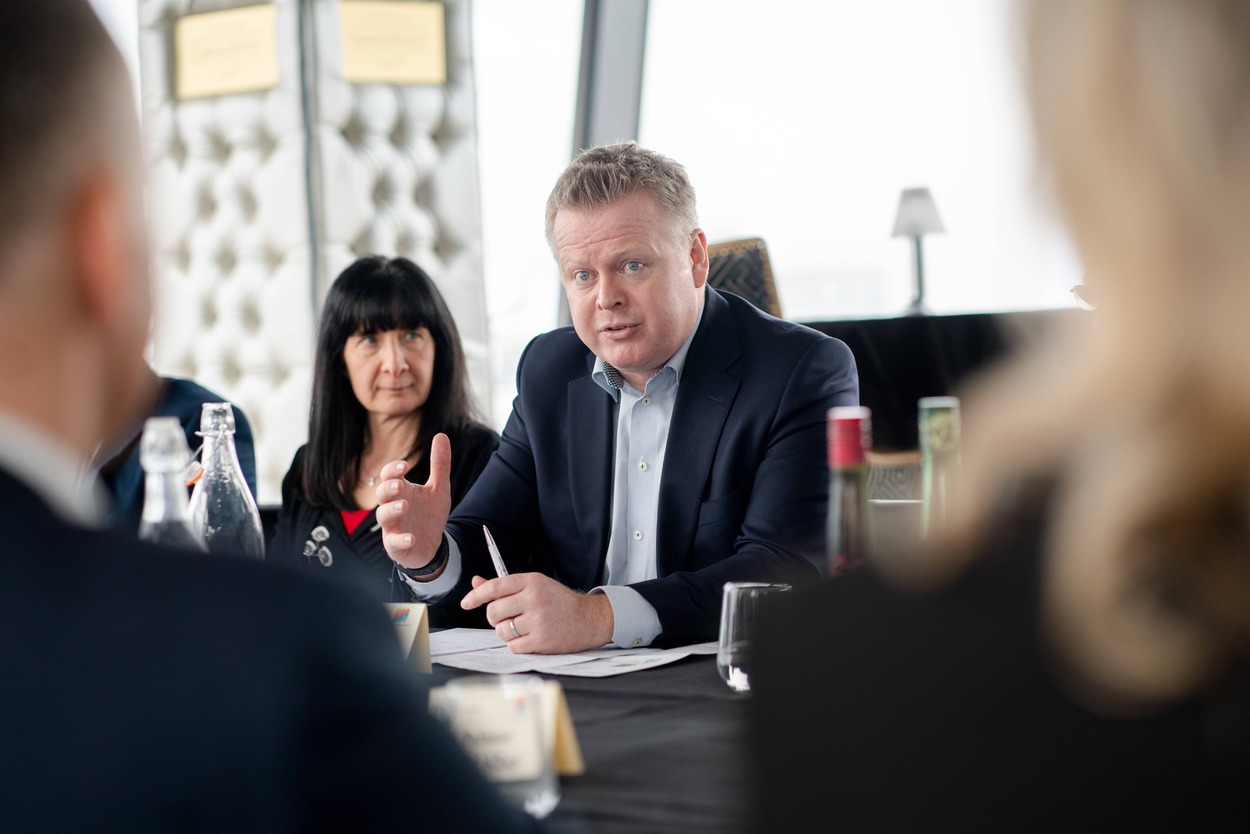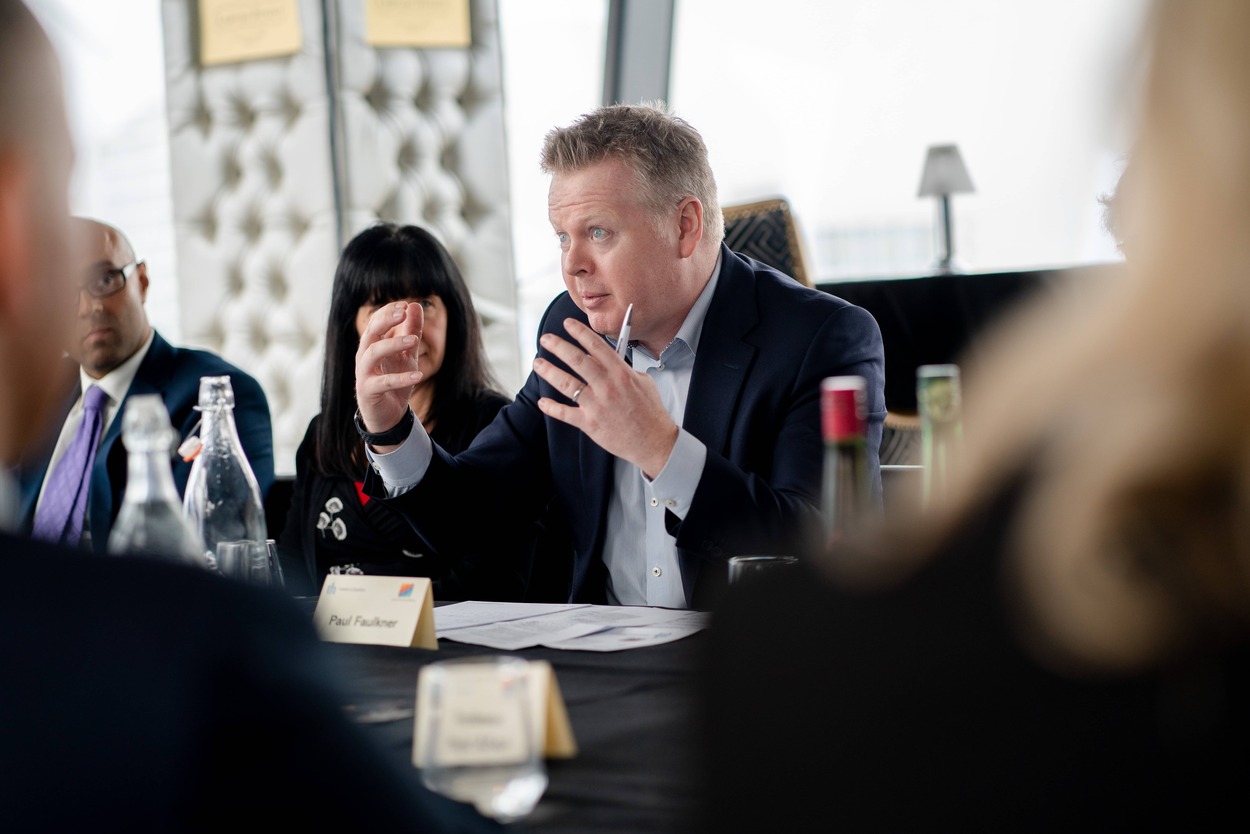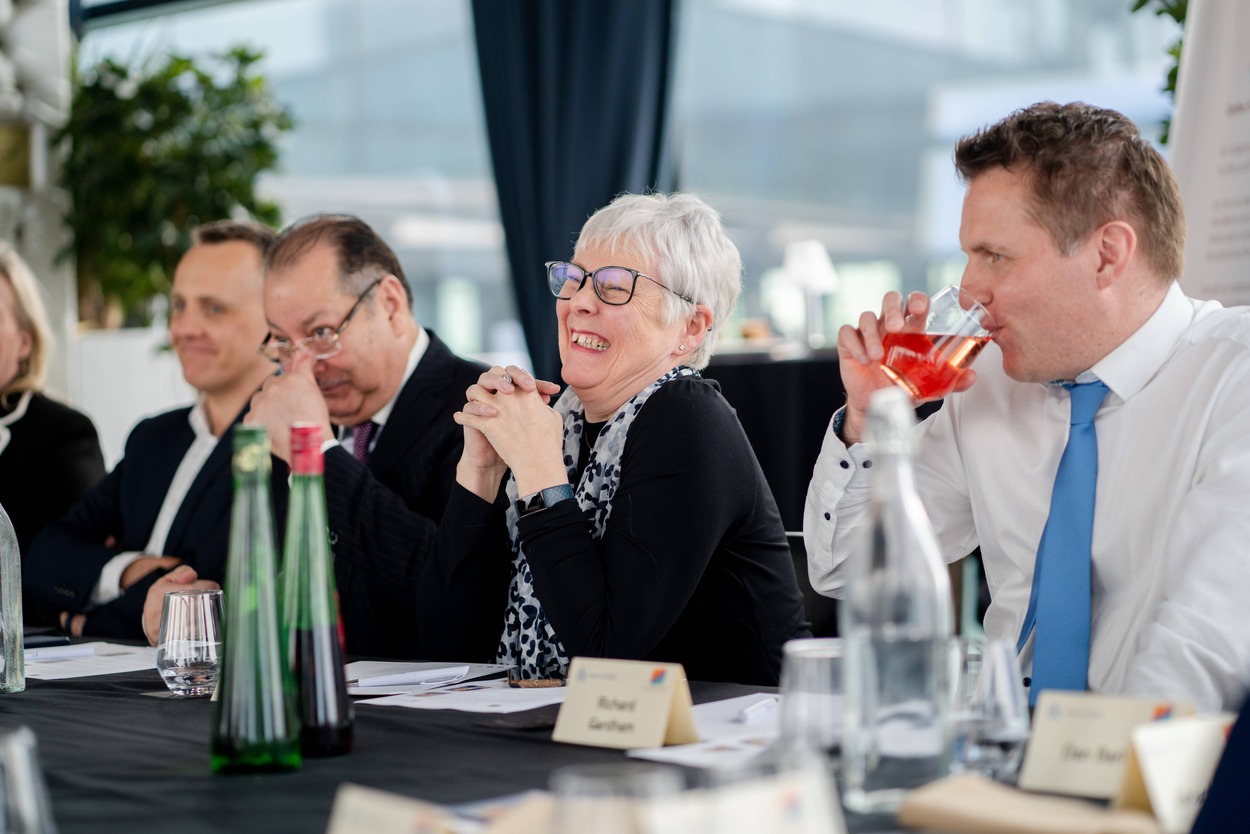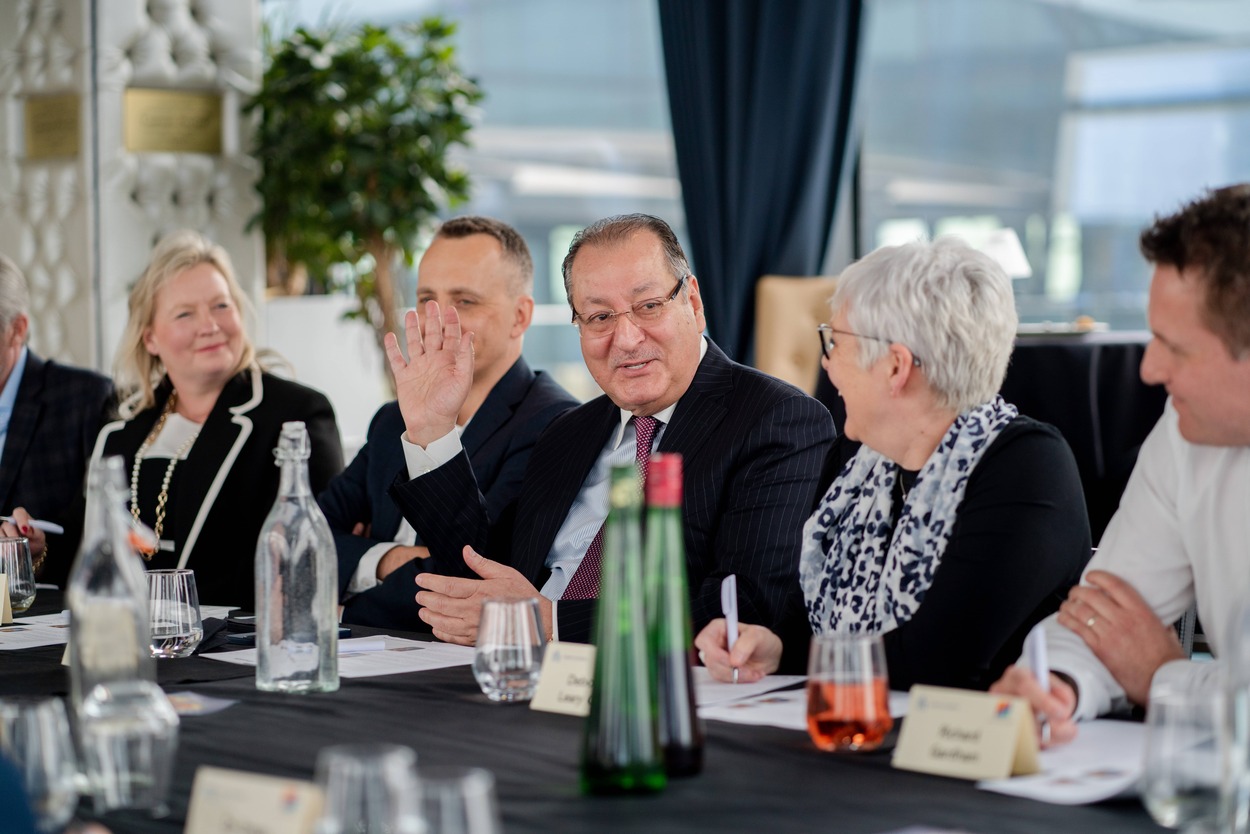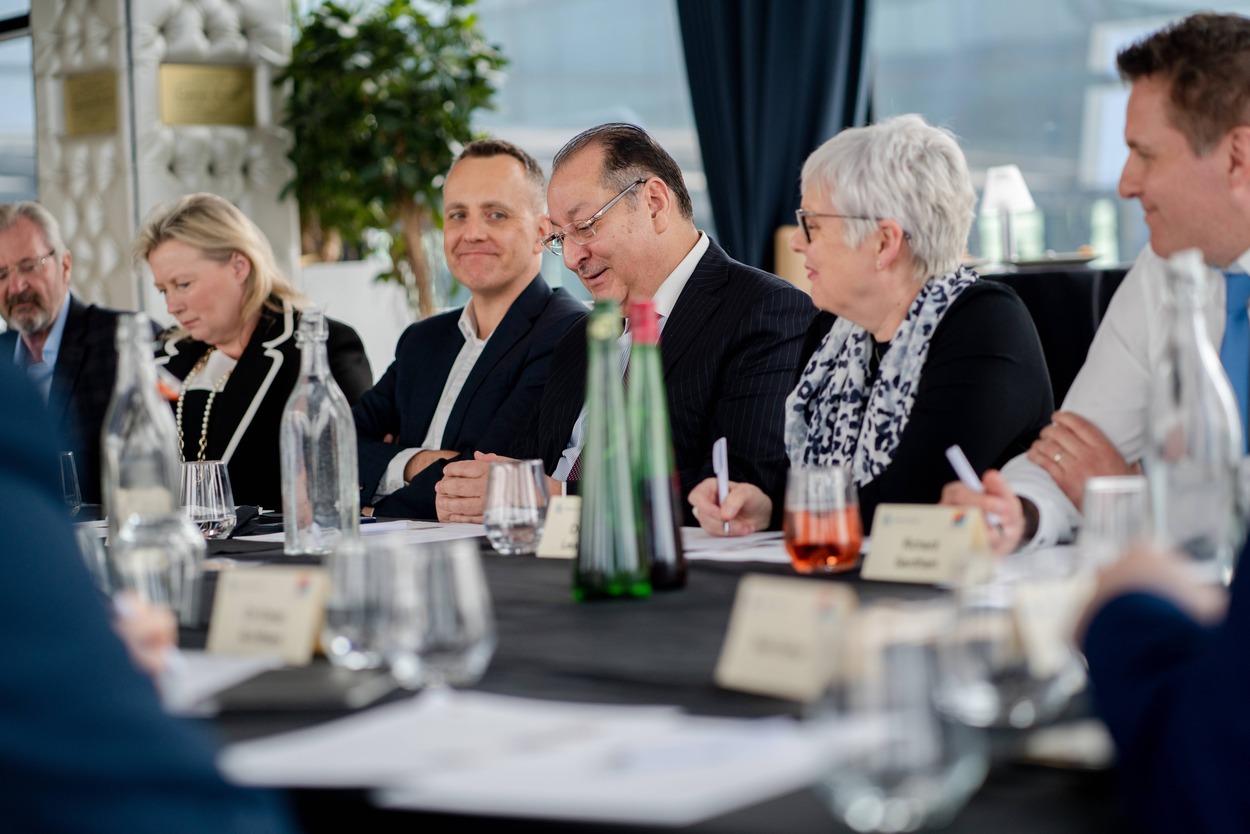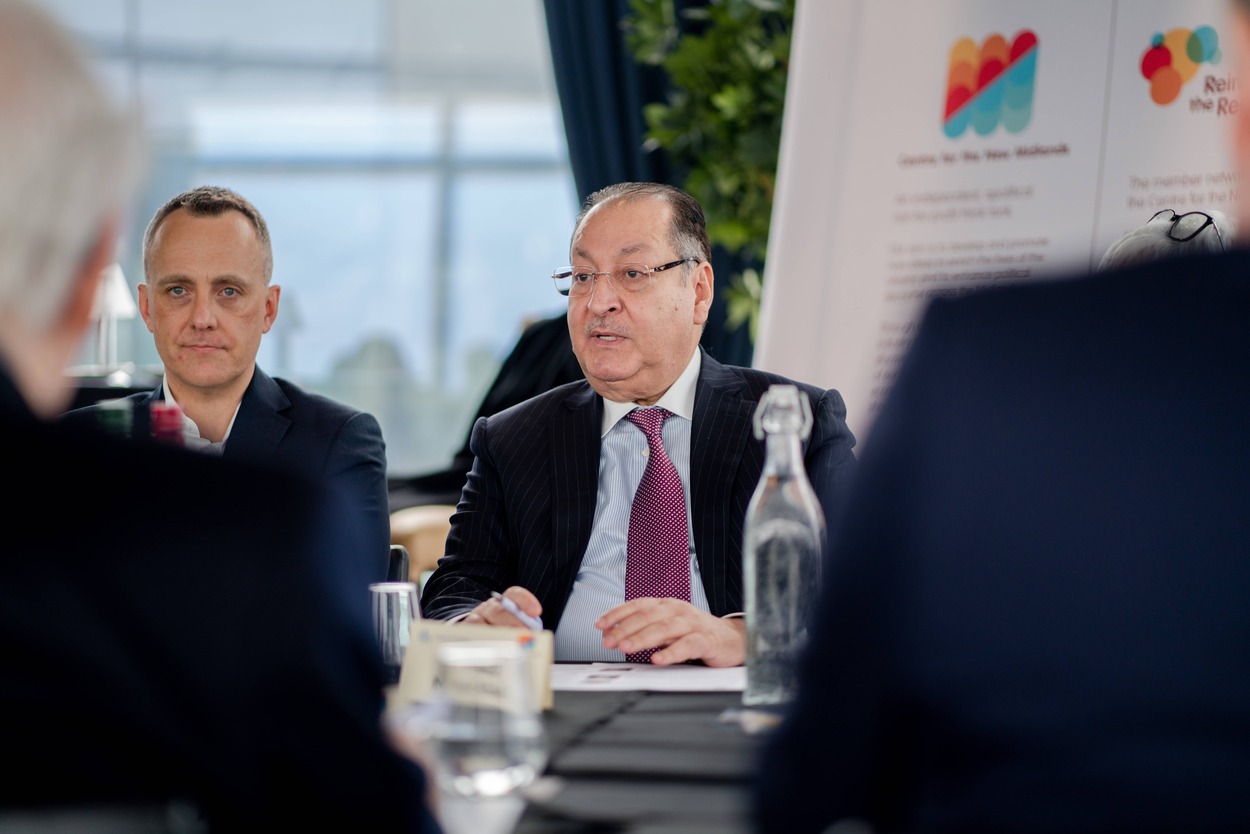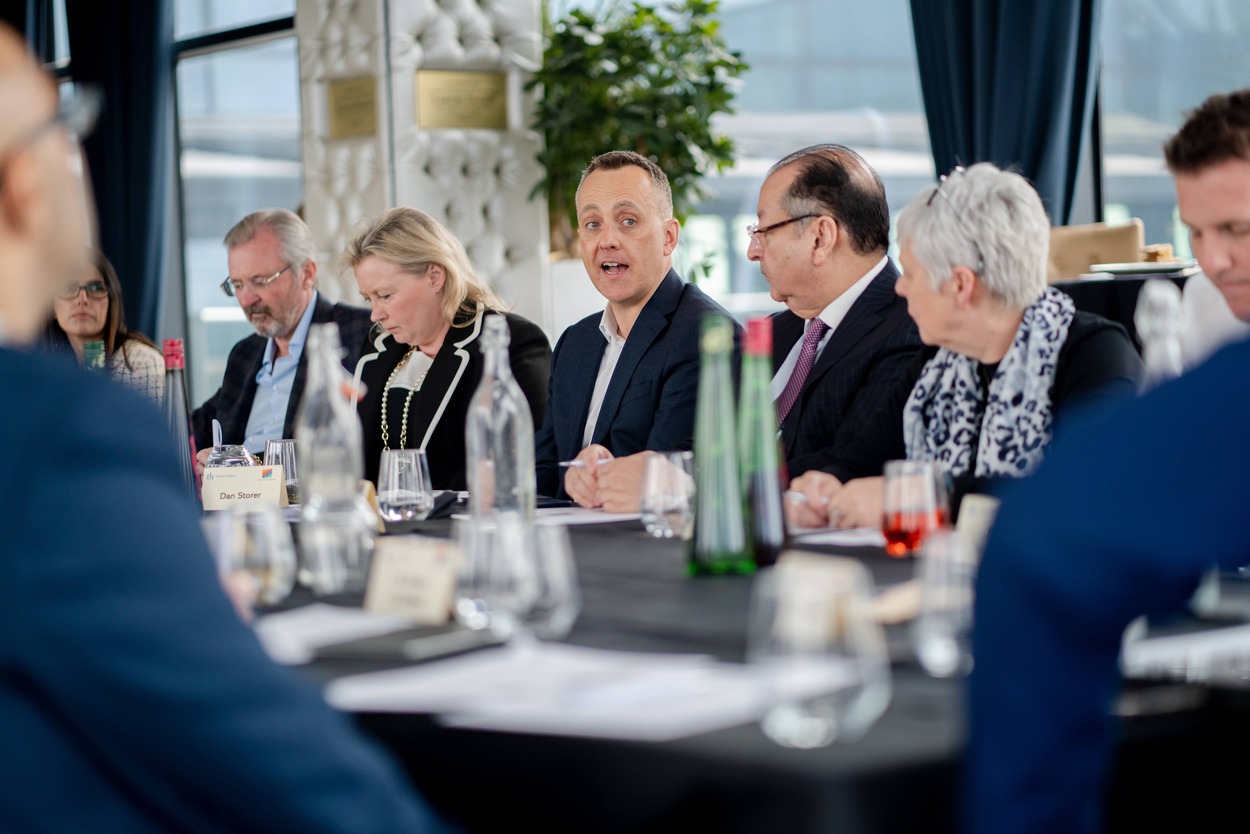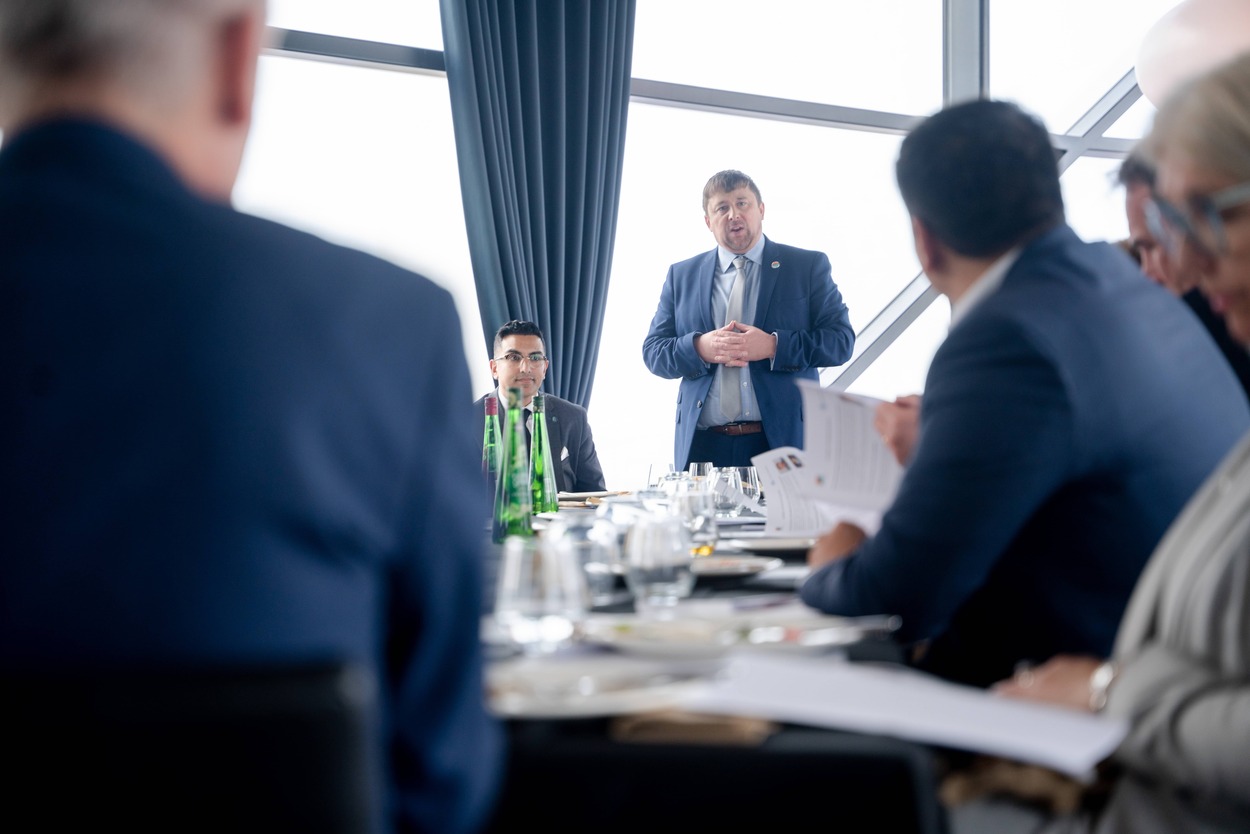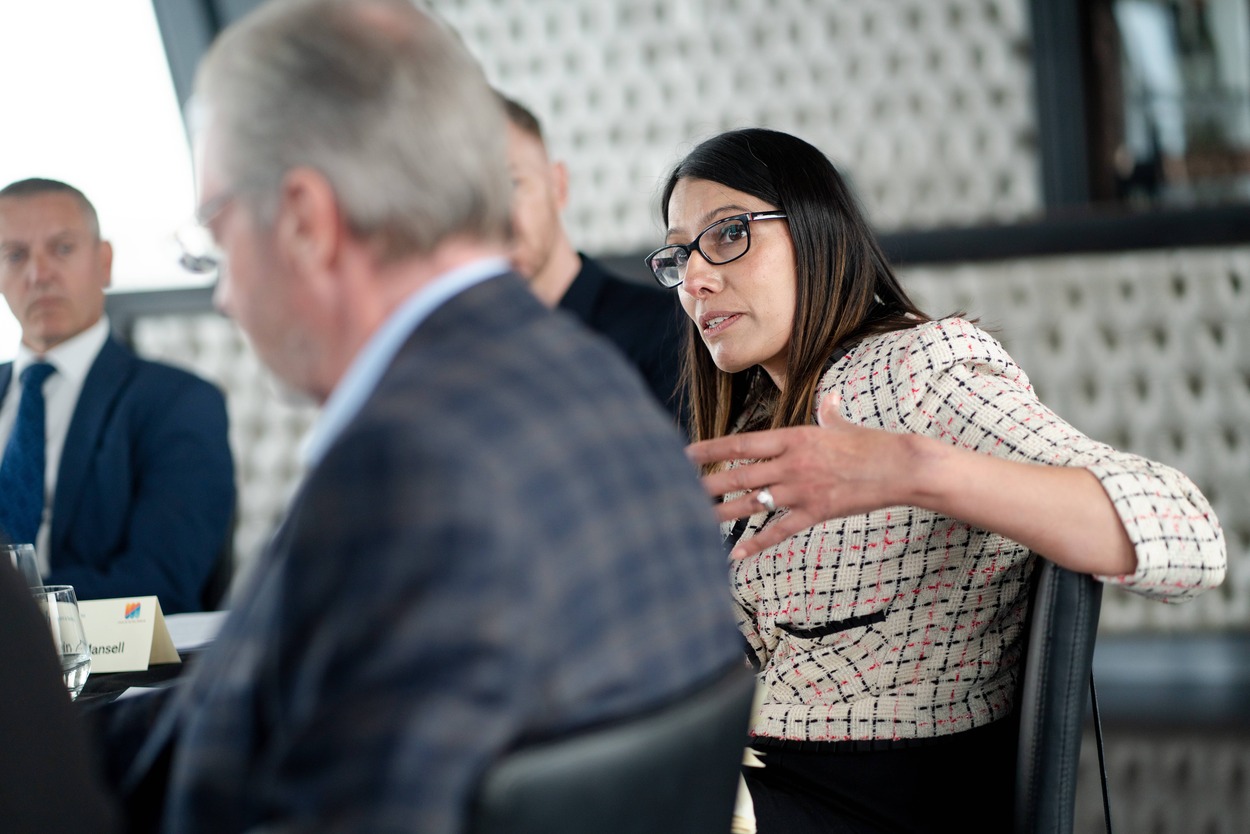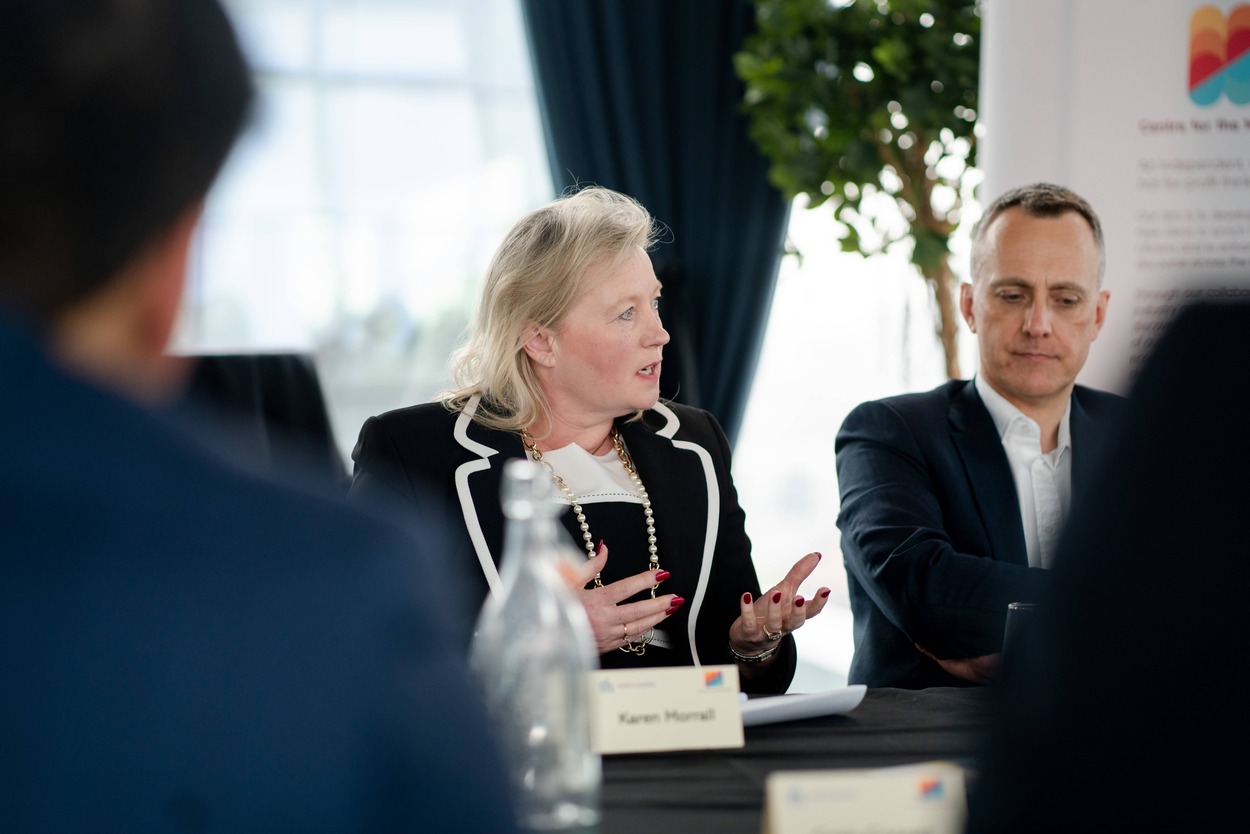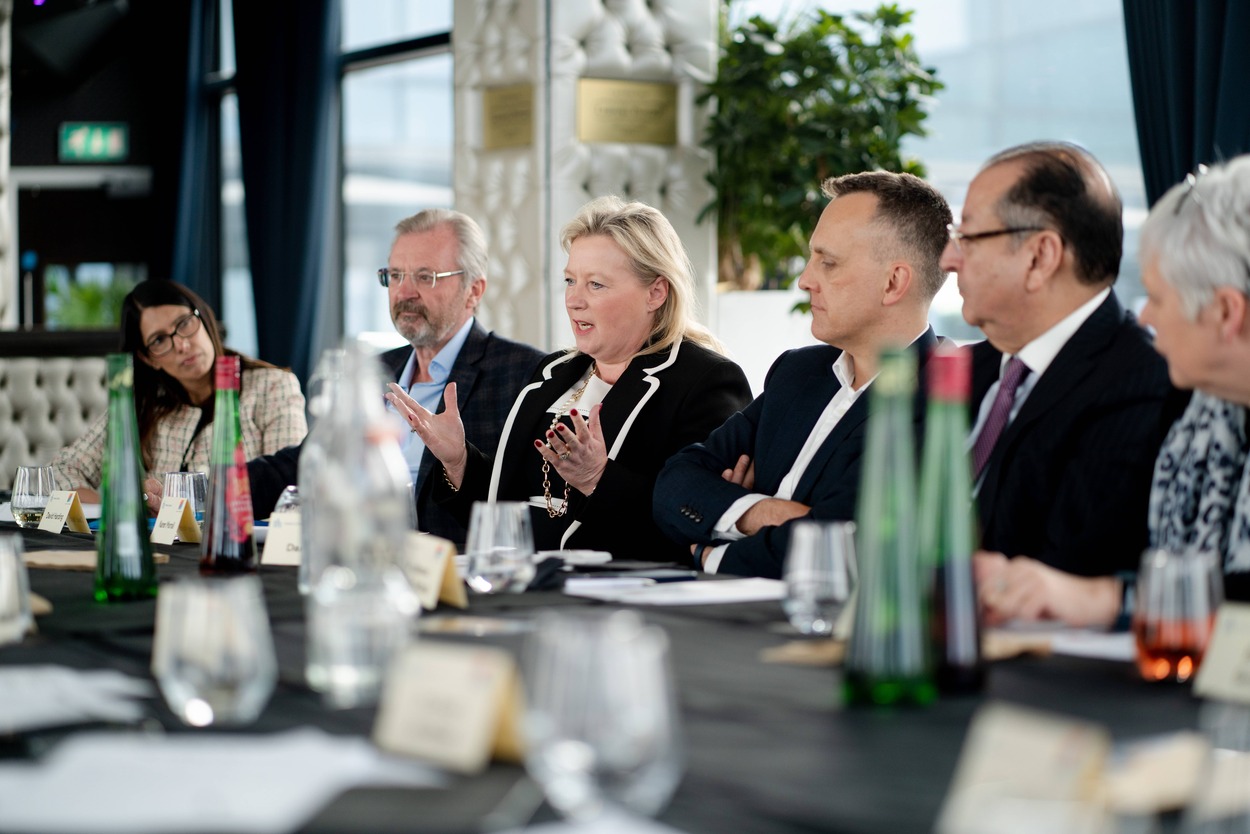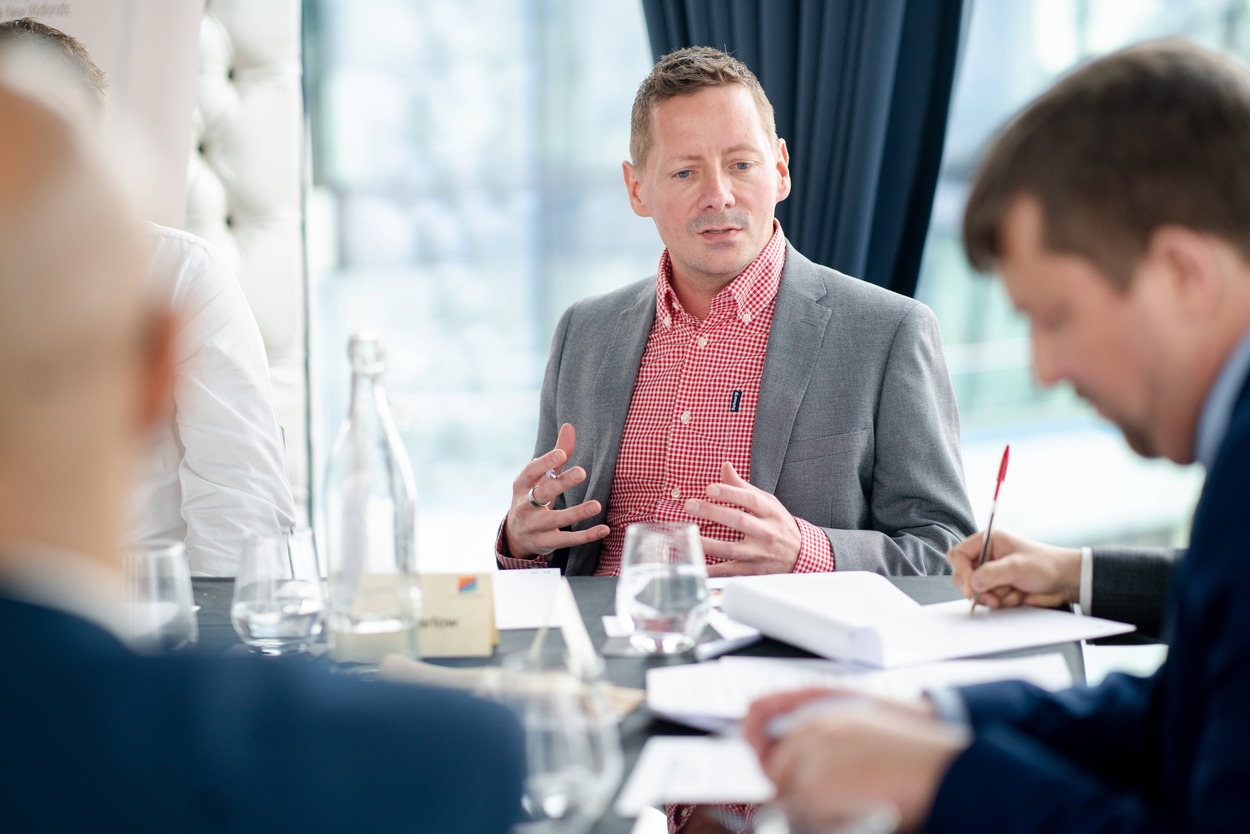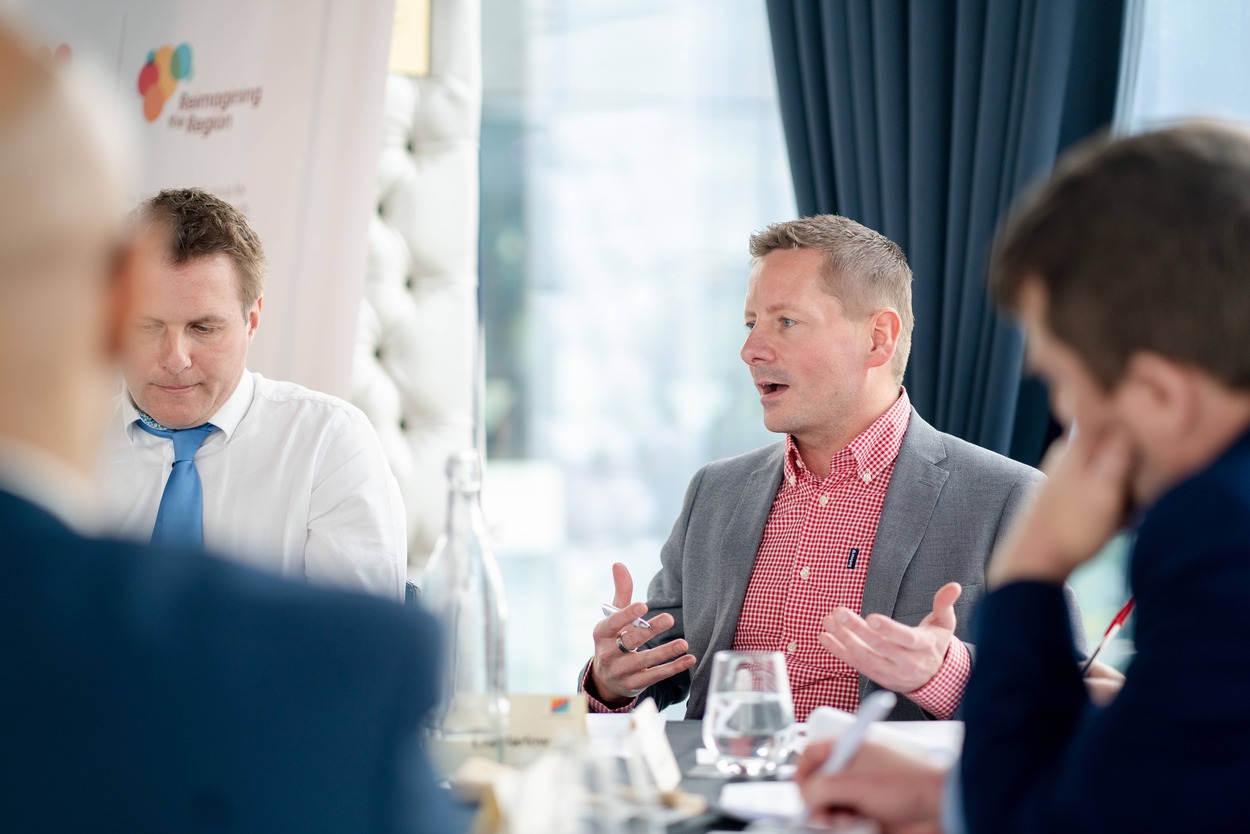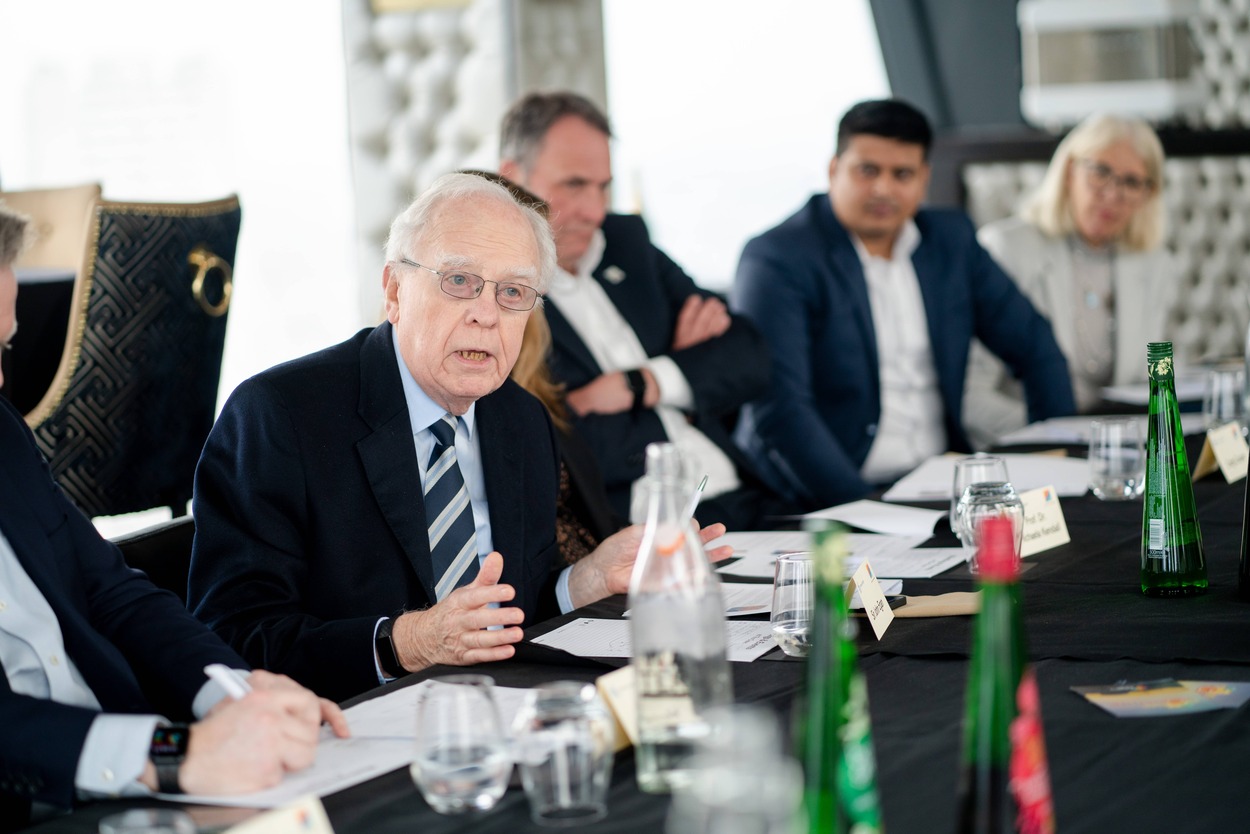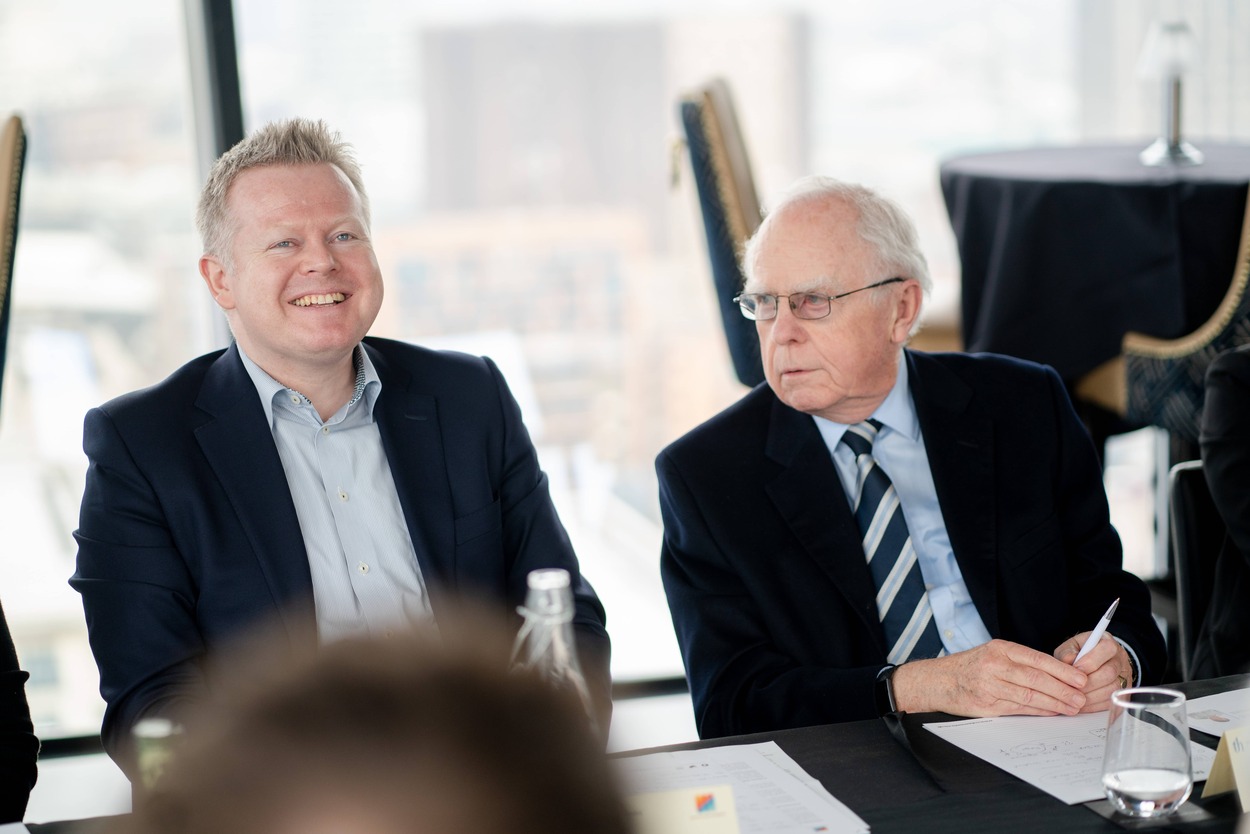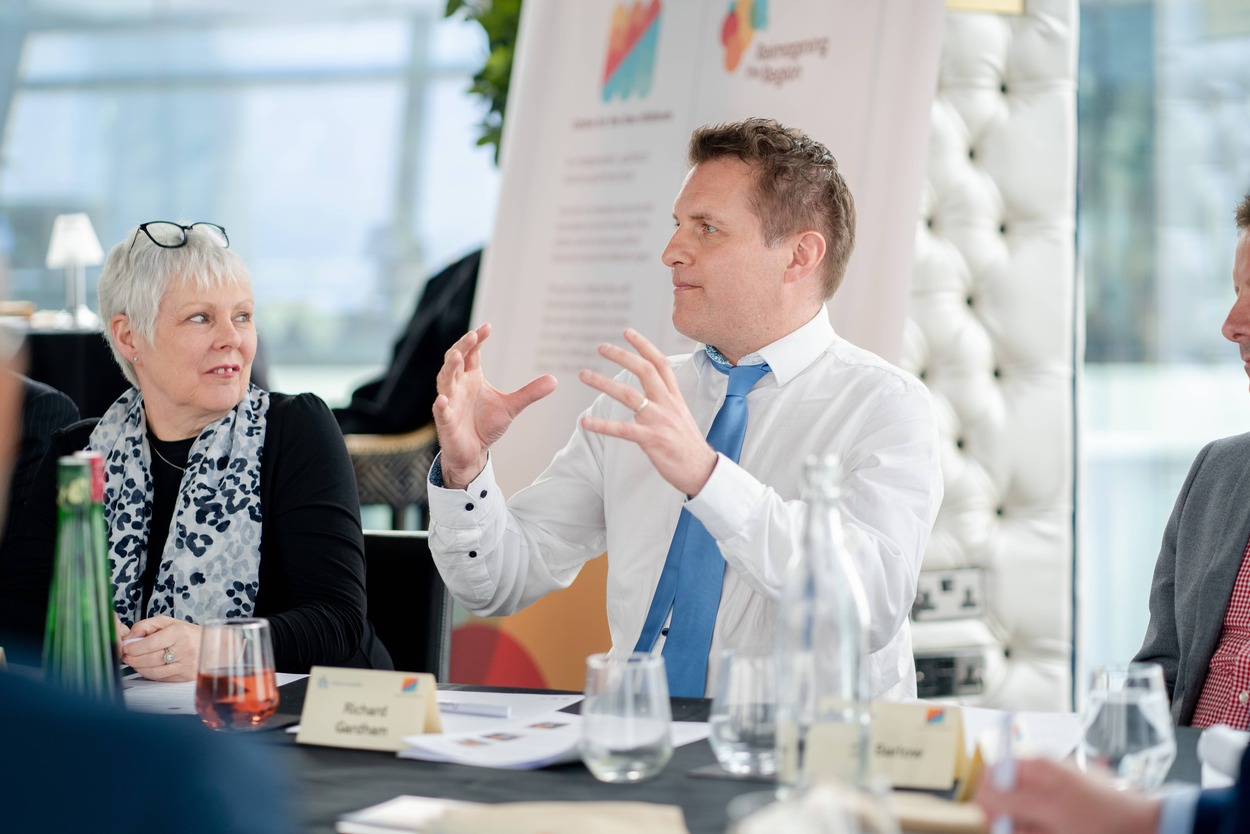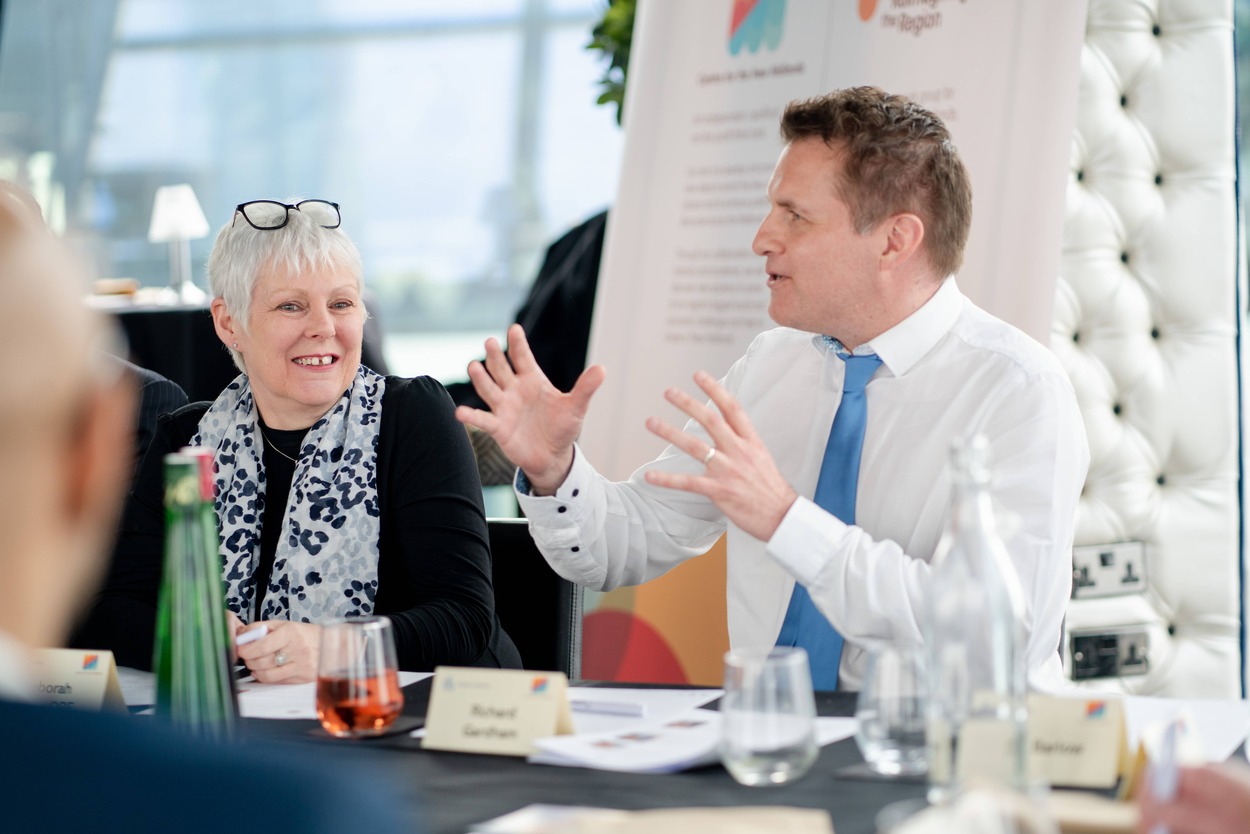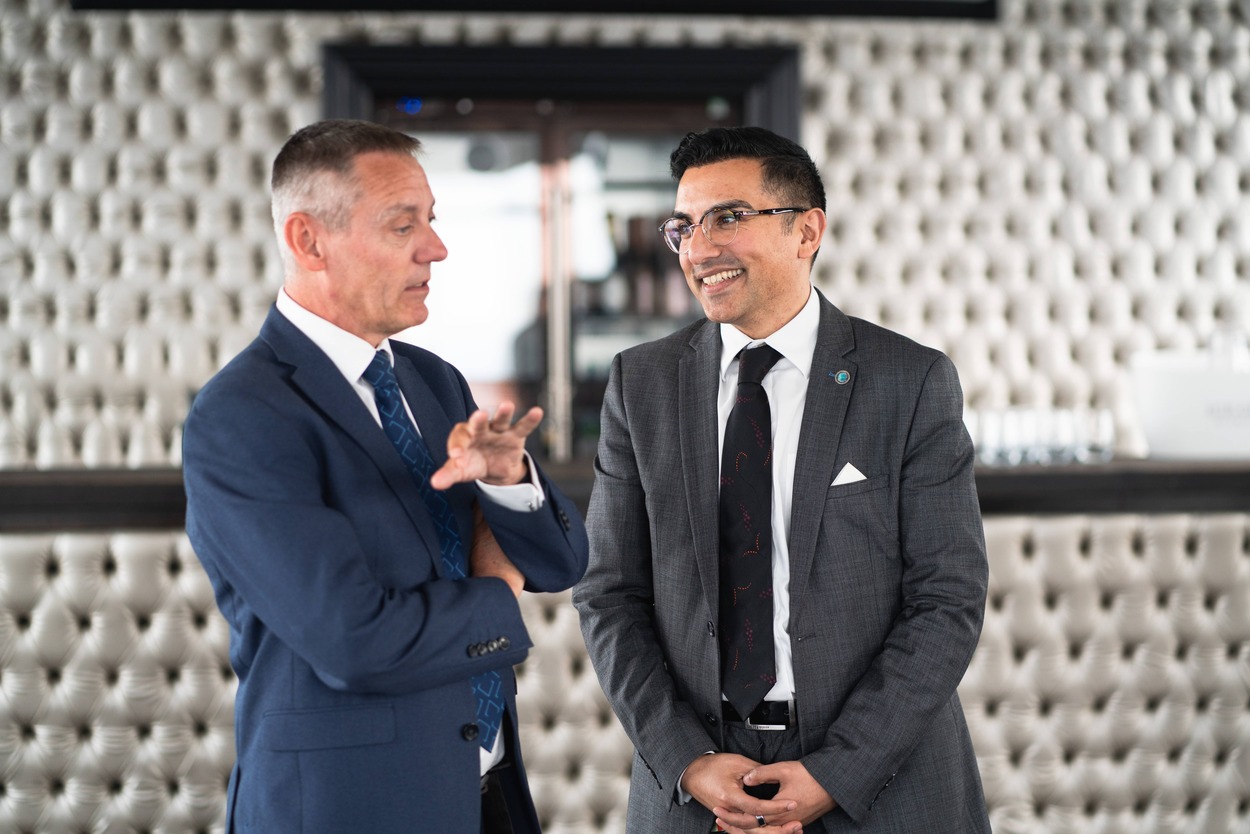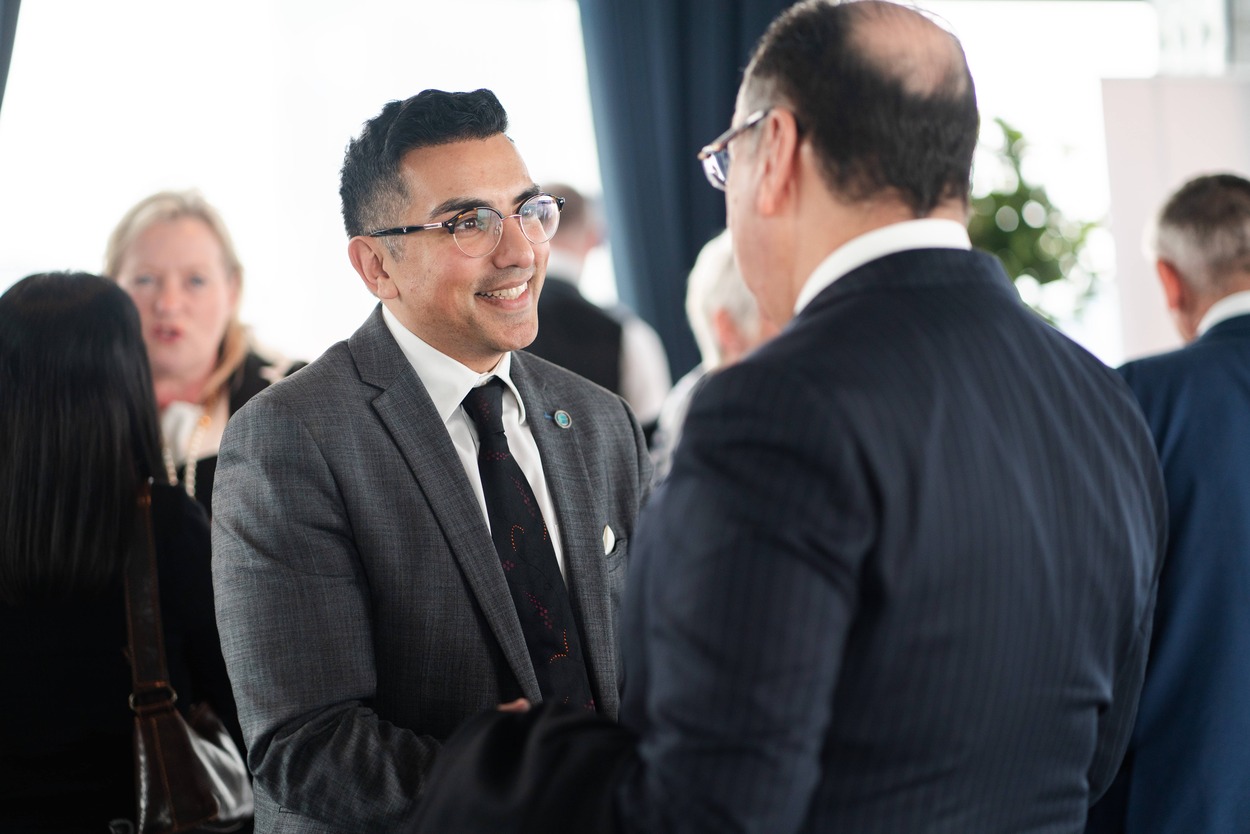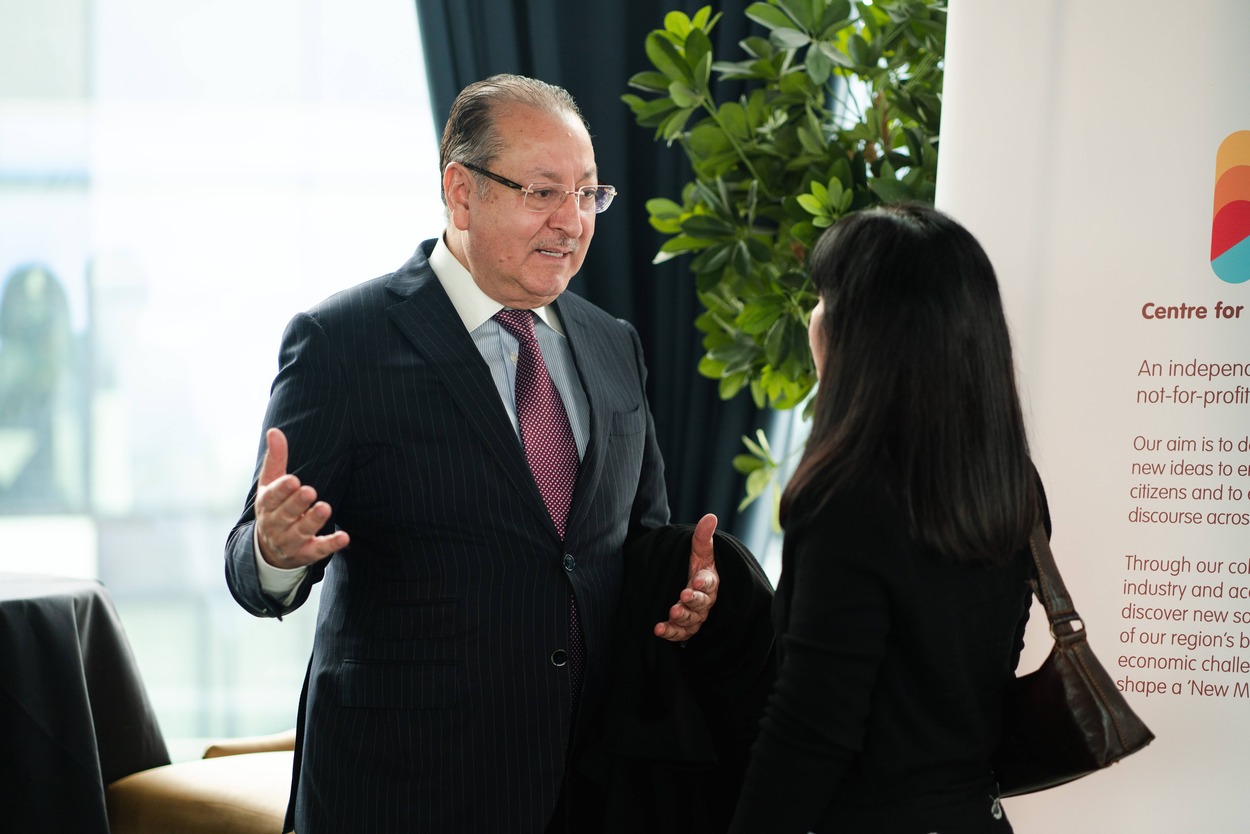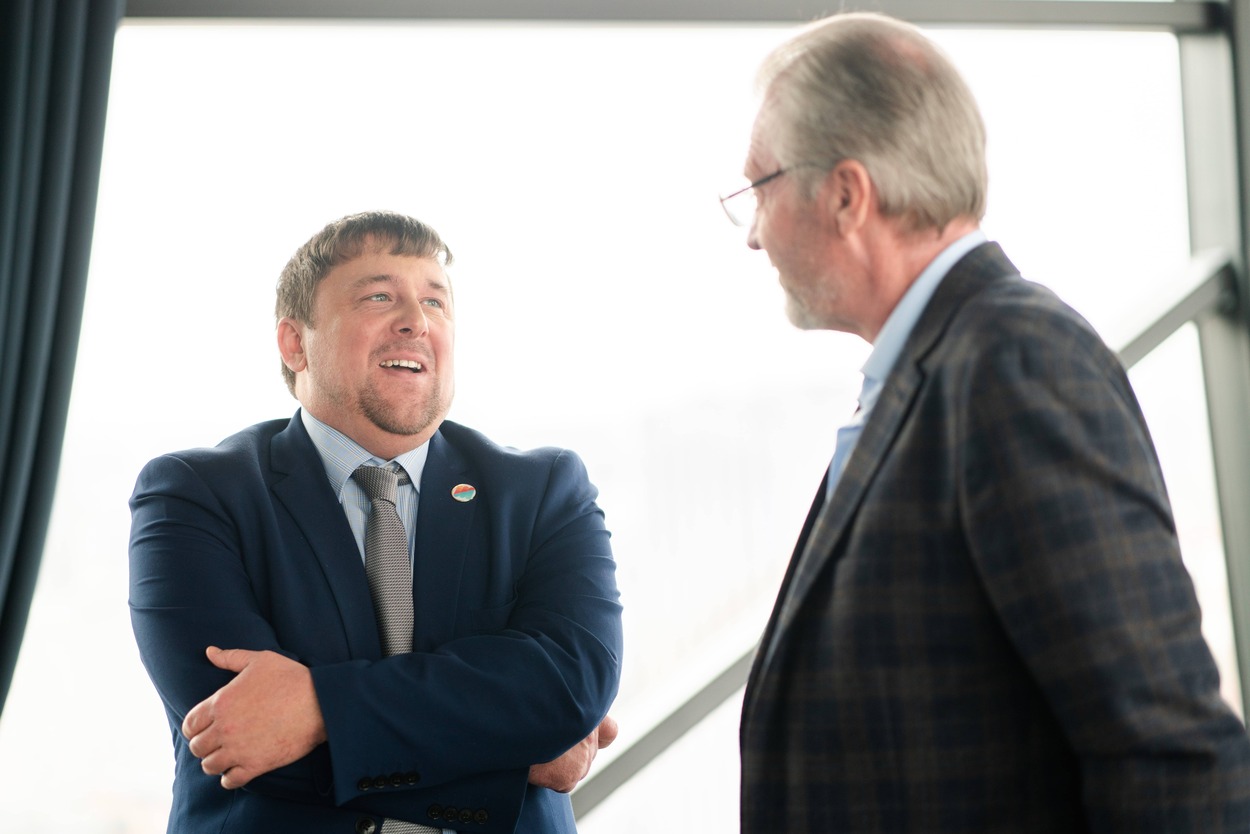Devolution 3 Roundtable report
Foreword
On 29th March 2022, 20 business leaders from across the West Midlands region joined the Centre for the New Midlands for its first ever Roundtable, with guests exploring the soon to be negotiated ‘Devolution Deal 3’ and specifically, the Mayor’s ambitions to secure greater control over trade and investment.
Supported by Trowers & Hamlins the roundtable welcomed leaders from a whole host of sectors and organisations from across the West Midlands and this report draws on the themes and issues discussed.
Devolution Background
There is growing momentum behind expanding the devolution programme across the United Kingdom. There is a creative tension between a local desire for greater autonomy and resources and a central recognition that better national outcomes can often be achieved locally.
Core cities have led the way, with Greater Manchester and the West Midlands being the so-called trailblazers. The first combined authorities were northern and metropolitan, with Sheffield, Liverpool and Leeds/West Yorkshire in particular seizing the opportunity to acquire additional powers and resources to drive economic development. It is, however, one thing to create a combined authority and another to achieve radical devolution. A better indication of progress is provided by the subsequent agreement with Government. Here much turns on whether the local politicians have been willing to sign up to the principle of an elected mayor. Those that have – including Greater Manchester and the West Midlands – have been able to agree more far-reaching arrangements than (for example) Cornwall and West Yorkshire (including Leeds). Combined authorities willing to pay the (mayoral) price will overtake those that are not.
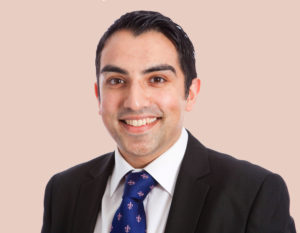
Amardeep Gill
Partner
agill@trowers.com
+44 (0)121 214 8838
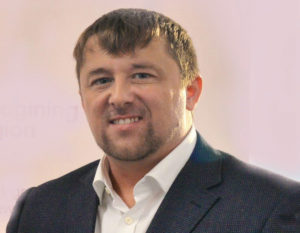
Chris Smith
Founder and Managing Director
Chris@thenewmidlands.org.uk
+44 (0)24 7518 5515
Attendees
| Centre for New Midlands | Chris Smith – Founder and Managing Director |
| Trowers & Hamlins | Amardeep Gill – Partner |
| Eastern Holding Group | Professor Majid AlSadi – Chairman and CEO |
| West Midlands Growth Company | Dan Storer – CIO |
| Richardson Family Office | Paul Faulkner – Chief of Staff and Operations |
| Forensic Pathways | Deborah Leary OBE – CEO |
| Birmingham City University | Cllr Beverley Nielsen – Executive Director (IDEA) |
| Sonihull | Darren Jones – Environment and Sustainability Director |
| Birmingham City Council | Craig Cooper – Commonwealth Games Programme Director |
| Kagool | Dan Barlow – Group CEO |
| Entec Si | Eman Al-Hillawi – CEO |
| Adelan | Dr Michaela Kendall – CEO |
| Lockdown Cyber Security | Karen Morrall – CEO |
| HSBC | Suzy Verma – Head of Business Development, Corporate Banking, Midlands Region |
| Alliance for the West Midlands (IAWM) | Iain Mansell – Deputy Director of Innovation |
| Sir John Egan | |
| Investment Monitor | Richard Gardham |
| LUK Hospitalities | Neel Chatterjee |
| David Harding (Chairman and NED) |
The heart of the issue is to change people’s lives: solving the fear of crime, improving life expectancy, and bringing opportunities to people who are not at the table will help bridge the gap of economic imbalance that is occurring across the UK.
Amardeep Gill, Trowers & Hamlins
Levelling Up
The Levelling Up White Paper reads as an overwhelmingly comprehensive rationale for reform and a framework for implementing a policy agenda that outweighs the breadth of any white paper in recent history. It takes some new approaches to delivering central government policy with new focus around medium term missions, modern categorisations of capital and a host of new Levelling Up committees, councils, directors and more.
A big development in the White Paper is with regards to devolution, rather than the somewhat opaque and piecemeal process to date, the Government is now proposing a framework for devolution which sets out indicative conditions with associated powers and funding that comes along with them. The past decade has seen devolution in England focus on metropolitan areas, whereas the approach outlined in the White Paper opens up the prospect of devolution deals beyond “functional economic areas” to “whole county geographies” or single large unitary. Some notable parameters to devolution deals are that they should not isolate nearby (non-participating) areas and the combined population should be at least 500,000. This approach underlines the White Paper’s focus on local identity and place.
Most notably, the ‘Levelling Up’ white papers includes plans to give more powers to so-called super councils like the West Midlands Combined Authority as well as creating more of them in areas which do not currently have one. It says: “The UK Government will open negotiations immediately on trailblazer deals with the West Midlands and Greater Manchester, which will act as the blueprint for other Mayor-led Combined Authorities to follow.”
West Midlands Mayor, Andy Street said: “The two places to lead all this have been chosen as Manchester and the West Midlands.”
Since the publication of the Levelling Up White Paper – fears of forced local government reform have been alleviated. The White Paper considers that whilst the case for wholesale institutional reform remains and such reform can “simplify the patchwork of local government structures, creating institutions with strong and accountable leadership,” reform will not be imposed on the sector as it would “distract from the implementation of improved local government services and delay the agreement and implementation of devolutions deals”.
Overview from the Office of the Mayor of the West Midlands
Given the importance of trade and investment to the economic prosperity of the West Midlands, and their potential to have a catalytic effect on levelling up, it is vital that the region has significantly more policy influence and a larger degree of ownership of delivery. This means:
- Providing authorities with sufficient core funding over the medium term to develop pipelines of investable propositions and to integrate exporters and investors into their wider economic programmes and objectives;
- Getting the basics right – in terms of land, digital connectivity, skills programmes, etc., which the Levelling Up and potentially the UK Shared Prosperity Fund can help with if places are actively encouraged to consider inward investment and export potential when planning for interventions;
- Exporters and inward investors are particularly strong at driving productivity gains and can do so faster within the right ecosystems. But business support programmes, delivered by a range of institutions, typically do not focus on how best to harness the full transformative impact of an investor on the local existing/potential supply chain, or how to properly support firms to export at scale and at pace. There is a strong argument that business support programmes should be geared more towards soft landings for FDI firms.
The case for a stronger regional role:
- UK Market Failure: FDI is national success story, but “UK first” has meant “London first” – with 55% of investment heading to London and UK SE. This approach must change for every region to have its own globally competitive city;
- UK regional T&I infrastructure is complex and inefficient: The current deployment of DIT resource is not aligned with UK Mayoral Combined Authorities (MCAS) and leads to overlap and duplication of resources which risks the investor journey;
- English regions are losing investment to domestic and international competition now: Currently UK regions have little means to counter proactive incentivisation of strategic investment both by UK devolved nations and international competition;
- West Midlands exports are in decline: Increasingly UK national export provision is centrally administered with little alignment with regional economic priorities.
What we need:
- Rationalisation of Regional T&I Infrastructure
- A new regional T&I delivery partnership
- Enhanced regional capital investment capacity
- Development of MCA focussed investment propositions
- Regionally managed strategic investment incentive funds
- Regionalising and aligning export support
Why we need it – The Levelling Up White Paper includes a commitment to ensure that each area of the UK has a “globally competitive” city by 2030.
- DIT does not formally recognise Mayoral Combined Authorities (MCAs) geographies as an economic investment opportunity
- Strategic ‘gearshift’ investment is often linked to ‘Place’. Strategic capital investors such as Sovereign Wealth Funds, Pension Funds and Global Infrastructure Companies often buy into a ‘place’, where there is coherent governance at scale; economic strategy; an internationally significant economy; and ideally the ability to co-invest with the regional government;
- UK regional city-regions have a poor international profile compared to many of their international peers. The poor recognition of UK regions and MCAs perpetuates the national problem of an out-weighted London focus from international markets;
- English regions are losing investment to domestic and international competition;
- The English regions are losing out to investment now due to competition from the UK devolved UK administrations and overseas competition;
- Despite the October 2021 launch of the £1.4billion ‘Global Britain Investment Fund’ there has been no further guidance re the scope and application of this fund or indeed the role of the regions.
Centre for New Midlands – Commentary
The Centre for the New Midlands is a not-for-profit think tank with the objective of supporting the social and economic growth across the West Midlands. In light of the recently released Levelling Up White Paper, which includes a commitment to ensure that each area of the UK has a “globally competitive” city by 2030, the Centre invited key business leaders, academics, policy-makers and more to a Roundtable event on Tuesday 29 March, hosted at Marco Pierre White Steakhouse and Grill, The Cube. The event was sponsored by Trowers & Hamlins.
A big theme of the Roundtable was drawing on the experiences of local individuals with impressive backgrounds across industry, policy, and academia.
- Chris Smith:
With over 15 years of experience working within higher education and having studied politics, Chris is well placed as the managing director of the Centre for the New Midlands. Chris explained that the Centre was established to be an independent, apolitical organisation with part of its strength being that it can overcome the historical London-centric sphere of influence, as it is based in the Midlands with a focus on regional policies to support the region. Chris noted that the initial two priorities of the think tank are (1) Housing and Communities and (2) the digital environment, and the opportunities both can bring for the region.
- Amardeep Gill:
A partner in Trowers & Hamlins and is nationally ranked as an expert in his chosen field (Chambers UK). Amardeep highlights the heart of the issue is to change people’s lives: solving the fear of crime, improving life expectancy, and bringing opportunities to people who are not at the table will help bridge the gap of economic imbalance that is occurring across the UK.
- Professor Majid AlSadi:
Professor AlSadi is the Chairman and CEO of the Eastern Holding Group of Companies; a vast investment and business group across the Middle East with significant interests in aviation and support services. Professor AlSadi is also a member of the Vice-Chancellor’s Advisory Board at Coventry University and President of the Centre for the New Midlands. He also serves his Iraqi compatriots in Jordan through his leadership of the Iraqi Business Council (IBC), which has been a key facilitator of Jordanian-Iraqi relations since 2006. Professor Majid believes the Mayor should have more effective powers to promote investments and key industries to the rest of the world, especially post Brexit to help diversify the economy and boost GDP. Professor AlSadi noted one area of opportunity is direct foreign investment to the Midlands by creating packages with incentives, such as good banking and loans with soft interest.
- Dan Storer:
The CIO for the West Midlands Growth Company, Dan has also held the position of Sales Director at Rolls Royce Plc – Civil Aerospace, where he led wide-scale campaigns across Europe, the Middle East and Asia. He points out that there is a tremendous imbalance in the national economy, explaining that in the investment perspective, 55% of the international investments go to London and the South East, with the West Midlands roughly in at second. Dan explains that the economic scale of the West Midlands Combined Authority is near equivalent to the size of Hungary while the West Midlands as a whole is near equal to the size of Portugal , and as the manufacturing heartland of the UK, specifically in electrification, we should not lose sight of opportunities in technology and digital services.
- Paul Faulkner:
Paul is the Chief of Staff and Operations at RCL Partners, the retained advisors to the Richardson Family Office, who specialise in property development, regeneration projects and private growth capital investments. Paul is the former Chief Executive of the Greater Birmingham Chambers of Commerce. Paul explains that while devolution stalled temporarily around 2016, the Midlands as a region, is set-up ready on the devolution-train to take full advantage of the latest opportunities. Paul highlights that the latest developments provide a prospectus to the Midlands to set a clear statement of what our region wants to be.
- Deborah Leary OBE:
Deborah is CEO and Founder of Forensic Pathways specialising in the development of innovative technologies for the criminal and threat intelligence arena. She has an Honorary Doctorate: Birmingham City University, Order of the British Empire (OBE), and has been awarded international Woman Entrepreneur of the Year, European Woman of Achievement and British Female Inventor of the Year. Deborah, as President of the Greater Birmingham Chamber of Commerce, explains our priority should be to ensure the world recognises the identity of our region. Numerous existing avenues are available to the region from the public and private spaces for the Midlands to make an impact on a global level.
- Cllr Beverley Nielsen:
Beverley is Executive Director at the Institute for Design, Economic Acceleration & Sustainability (IDEAS) at Birmingham City University. Beverley was appointed an Expert Commissioner for the Manufacturing Commission and All-Party Manufacturing Group in 2021. Beverley was previously the first female Director of FTSE 250 company, AGA Rangemaster plc and MD of subsidiary interiors business, Fired Earth. She draws attention to the importance of not forgetting the Shire counties and the outlier regions, to avoid cultivating a divisive structure; the governance needs to work together to promote the region as a cohesive unit.
- Darren Jones:
Darren is currently Non-Executive Chair of Develop Consulting, a lay governor of NHS Arden Gem CSU, and ESG Director of the green technology company known as Sonihull. As Chair of the Centre for the New Midlands’ Environment, Transport and Infrastructure workstream, Darren brings an unusually broad understanding of Private Sector, Global Trade, Public Sector and the machinations of academia. He explains that the importance of the region having a person or body that has soft and hard powers which can be seen in the international stage. He gives credence to the fact that the Midlands operates on the 5th biggest economy in the world, and that, one method to instigate growth to the region is by expanding the remit of the Airport to be more business friendly and take advantage of regional strengths, for instance creating links to automotive cities and dispense with the prospect of a mere “bucket and spade” airport.
- Craig Cooper:
Craig attends supporting the Birmingham City Council’s work on the Commonwealth Games 2022 with a strong track record in executive leadership, delivering high impact change and transformation strategies for public and private sector organisations on major projects with multistakeholder involvement. He explains that through the Commonwealth Games, the world will draw its attention to the region and this will provide a platform to take the stature of the Midlands to the next level.
- Sir John Egan:
Sir John is a British industrialist, associated with businesses in the automotive, airports, construction and water industries and he was knighted in the Queen’s Birthday Honours list in June 1986. He was also the chief executive and chairman of Jaguar Cars from 1980 to 1990 and chairman of Jaguar plc from 1985 to 1990, he then served as chief executive of BAA from 1990 to 1999. Sir John notes that we must ensure our Mayor has leverage to get things done and reminds us of the importance of fundamental needs of the locals in a region, such as safety, to be well-managed before it can realise its potential.
- Dan Barlow:
Dan is the founder and Group CEO of Kagool, a UK headquartered, Global IT Consultancy company with operations in the USA, LATAM, Mainland Europe and APAC with group revenues +£20m. He has over 20 years’ experience delivering IT solutions across a variety of industry domains including Manufacturing, Logistics & Supply Chain, Retail, Financial Services and Public Sector. He has led the continued 100% year-on-year company growth, which repeated unabated through the global pandemic. Dan states that his business has been able to maximise the opportunities presented through the pandemic because Kagool’s customers were seeking companies in his field who had a local presence, and off the back of this, the company created its own training academies to train new people and develop skills.
- Eman Al-Hillawi:
Eman is the CEO and co-founder of business change consultancy Entec Si which is Birmingham-based consultancy specialising in supporting organisations through business, culture and IT change. With particular expertise in local government, not for profit, and aviation sectors. Eman explained, though she grew up in London, once she moved to Birmingham she never left and when she came here, she saw the opportunities of the city and the wider region. She explains a key strength of the region is its size, big enough to have a national and global impact, but still small enough to foster cross-industry relationships.
- Dr Michaela Kendall:
Over a 30-year career, Dr Kendall has secured more than $34 million in funding, working with powerful strategic policy and technical networks vital to low carbon businesses that can deliver energy transition, including the US EPA, the UN, the EU and national governments. As a leading environmental scientist with faculty positions in America, Asia and Europe, Dr Kendall also holds academic posts (including three Visiting Professorships) at UK universities. She is the CEO/Co-founder of fuel cell pioneers Adelan, UK Hydrogen Champion for Mission Innovation at BEIS and Chairs the Midlands Hydrogen and Fuel Cell Network. Michaela highlights that her pioneering work in hydrogen has been called upon from Washington and Beijing, but bizarrely never by her own home city. Part of this, she feels, may be the competing interests of multiple local authorities, whereas other players like the United States are more aligned on their global hydrogen strategy, and perhaps there is a lesson our region can learn from this.
- David Harding:
David is an experienced main Board Director on both public and private companies. As a consultant David works with Boards to ensure priorities are clearly defined and agreed, resources are properly aligned against priorities and cultures are effective and performance centred. Also culminating in 7 years as CEO of William Hill, he led a successful IPO and as a public company oversaw the trebling of both profitability and share price. David notes the importance of speaking to business leads in the region, like Jaguar Land Rover, to understand what skills and capabilities they need in light of global supply changes, so that we can support these market-leaders and provide opportunities to the people of the region.
- Karen Morrall:
As Chief Executive Officer of Lockdown Cyber Security, Karen is very interested in digital transformation: AI, Robotics, IoT and 5G. She has held director roles in numerous technology businesses involving big data, cyber security, and digital forensics. Is an experienced Finance Director within the IT, service sector and M&A activity. Karen points out that she was born and bred in the region, and while having worked across the world while younger, she is now rooted here. She notes there should be greater emphasis on cutting-edge industries in the Midlands, such as cyber security. Ultimately, communication and visibility on where regional funding is going will help ensure it is being invested in the right places and industries.
- Suzy Verma:
Suzy is the regional lead for HSBC UK in its commercial bank, driving societal impact & external engagement. Suzy’s role is to originate, coordinate and lead client acquisition, sector collaboration and wider stakeholder engagement through leveraging the Bank’s global network and sector expertise. Suzy explains a key component of regional growth is understanding how we bring back private investment to the Midlands. She highlights the significant of targeting overseas companies to direct their attention to the region.
- Iain Mansell:
Iain is a member of Common Purpose Birmingham Advisory Group as well as an Industrial Advisory Board member at Aston University. Iain is also Deputy Director of Innovation Alliance for the West Midlands (IAWM). which is an alliance of organisations active or interested in science and technology-based innovation across the West Midlands. Iain asks that perhaps a wider question to be given consideration is how can we enable the private sector to show leadership. The target, in his view, should be to “consult” in more than “consult out”. It was noted that Greater Manchester solved the issue of competing authorities by establishing a machine to overcome the division, despite having multiple chambers of commerce, Iain notes, the West Midlands needs to consider similar strategies and structures.
- Neel Chatterjee:
Neel is the owner and operator of two ibis branded hotels in Birmingham and Coventry, as well as being a Co-Founder and Finance Director of Hound Mobility, a UK-India-Taiwan based start-up operating in the e-bikes industry. Neel explains from his own experience in the industry, hospitality has had to cope recently with a huge shortage of people and skills. He has spoken with a number of institutions, including several universities, who have highlighted the shortages in the field. Neel explains this issue needs more attention given its prevalence and, given Birmingham’s relatively young population, it is alarming that numbers in this sector continue to dwindle in the region.
- Richard Gardham:
Richard is the managing editor of Investment Monitor, overseeing editorial output for the site. He has worked in magazine production for 25 years, with a career spanning numerous national newspapers and business-to-business publications. Richard highlights the importance of building up the identity of the region and marketing it as a brand. Moreover, a clear understanding of the geography included within the West Midlands needs to be part of this messaging.
Conclusion
Bringing together individuals across different facets of life in the region has helped identify some of the key opportunities afforded to the region to take advantage of, and how it can propel itself forward, following the announcement of the Levelling Up White Paper. The ambition of the Centre of the New Midlands remains to build relationships and present the best ideas to nurture the region’s development. A key challenge the roundtable exposed is to keep the locality involved and engaged during these periods of rapid change, and the Centre will continue to establish forums to give the region’s people their opportunity to participate and share their ideas for the Midlands to realise its potential.


